Big Talk has switched over to a new email service! Subscribe now for Big Talk Videos, Ideas, Questions, Activities, and Inspiration!
Big Talk has switched over to a new email service! Subscribe now for Big Talk Videos, Ideas, Questions, Activities, and Inspiration!


The summer solstice, a time of heightened daylight and energy, can be a perfect opportunity for deep reflection and introspection. Here are some meaningful questions to consider:
Reflecting on these questions during the summer solstice can help you gain clarity, set intentions, and embrace the energy of this powerful time of year!
View this post on Instagram
View this post on Instagram
Join Big Talk and Santa Monica’s Art of Recovery Program in Planting Seeds of Hope for May’s Mental Health Awareness Month!
Big Talk will host pop-ups at various events throughout the city with an interactive art installation for passersby to stop by, write messages of hope, and make more meaningful and delightful community connections!
1. May 11th: Mental Health / Wellness Fair at Grand Park in Downtown LA from 10 am – 2 pm
2. May 14th: Mental Health Proclamation at Santa Monica City Hall at 4:30 pm
3. May 18th: Pop-up at 18th Street Arts Center at Santa Monica Airport from 1 pm – 3 pm and Pop-up from 3:30-6 pm at Bergamot Station.
4. May 19th: Pop-up for Kidical Mass (Family Friendly) at Cloverpark from 9 am – 12 pm
This project was made possible by Art of Recovery, an initiative of the City of Santa Monica Cultural Affairs.
City of Santa Monica Cultural Affairs’ Art of Recovery Initiative is partnering with the Housing and Human Services Department, Equity and Inclusion Office and Asian American Pacific Islander City Staff Affinity Group to offer five new temporary public art projects this May 2024. These Art of Recovery projects with Kalina Silverman, LA Freewaves, Second Day Studio’s Jacqueline Kim, bG Gallery and the Coalition of Asian and Pacific Employees of Santa Monica are honoring Mental Health Awareness Month and Asian American Pacific Islander Heritage Month.
Kalina Silverman: Big Talk – Skip the small talk and make Big Talk (@makebigtalk / makebigtalk.com) with an interactive art installation for passersby to stop by and participate to make more meaningful and delightful community connections!
Big Talk (makebigtalk.com), which began as a video project in 2014 in Santa Monica by artist Kalina Silverman, is a global movement for skipping small talk to make more meaningful connections. Big Talk includes a viral Instagram video series (instagram.com/makebigtalk), events all over the world, and a question card game and app. Big Talk’s mission is to fight modern-day loneliness and social isolation, facilitate community belonging, and build empathy through the power of storytelling about our shared human experiences.
Big Talk participated in the Art of Recovery Initiative in conjunction with the Housing and Human Services Department and their May 2023 Mental Health Awareness Month events. Big Talk appeared at three City-run events to initiate an icebreaker and film interviews with attendees answering questions such as “What does your dream community look like?” and “What was the darkest time of your life and how did you get through it?” At the events, new community connections were made, and online, one of the videos filmed led to over one million views, sparking meaningful dialogue about mental health and resiliency.
For the May 2024 Mental Health Awareness Month, Big Talk will build a mobile interactive experience for multiple locations in Santa Monica such as farmers markets, parks, Third Street Promenade and Santa Monica Pier. Big Talk will participate in the May 14 City Council proclamation to celebrate the month and make a City Hall Lobby installation. These interactive experiences will lead to media production shared through the City’s media channels as well as Big Talk’s. This Art of Recovery Project will serve as a meaningful and delightful way to encourage dialogue, self-discovery, and belonging within the local community.
Almost 10 years ago, Kalina Silverman was in a new city living a busy life—attending events, signing up for activities, and meeting new people all the time. Yet she still felt intense loneliness at the end of each day. One night during a deep conversation over FaceTime, Kalina’s friend said, “Wow, I wish more conversations could be like this. This is the connection I need right now. Screw small talk.” Something clicked—while she was taking part in plenty of conversations, what she craved was big, deep connection and in order for our connections to be big, so did our talk.
I talked to people from all walks of life—people experiencing homelessness, business people, kids, elderly people. That experiment showed me that what matters most in life are connections and relationships. It turns out that matters to other people too, because I posted it to YouTube and began receiving inquiries from all over the world from people who said they wanted to join the “Big Talk Movement.”
So how did this one video turn into the Big Talk Movement that includes a card game and the viral social media presence?
At the same time people started calling ‘Big Talk’ a movement, I was invited to give a TEDx talk (that has now received close to 7 million views on YouTube) and I started receiving a lot of requests to come and do Big Talk workshops, or host Big Talk events. I hosted dinners where 10 strangers with Big Talk questions on blank note cards would pair up with someone they had never met before to answer the questions. Something so simple was so effective. I was also working in a research lab at the time, so I would test out different questions that people could relate to across cultures. I received a Fulbright grant to move to Singapore to research ways to use Big Talk to build empathy, just by having these very simple, meaningful, human-centered conversations.
I started printing out these questions and doing them with the Muslim women’s organization in Singapore, the Jewish women’s organization in Singapore, teams of expats, groups of corporate professionals, and students. It didn’t matter who, these questions were really relatable to everyone. I came up with criteria for what makes something ‘Big Talk.’ First that it was a universal question or conversation topic, meaning anyone can answer it no matter who they are, what they do, or where they are from. Second that it wasn’t just a yes or no question. Finally, questions where you didn’t need to have certain factual knowledge—it wasn’t about political opinions, it was just about being a human.


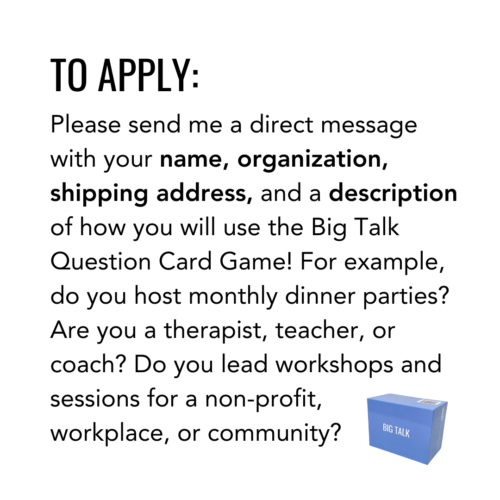
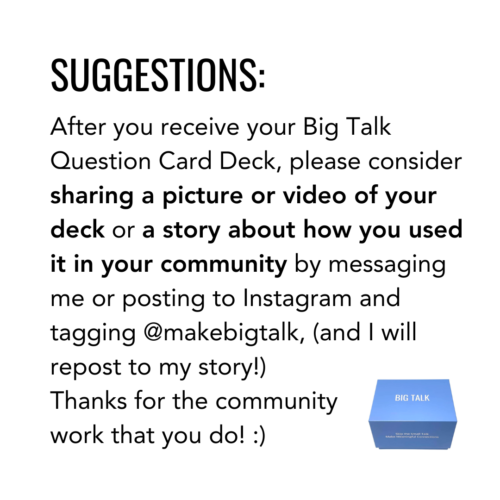
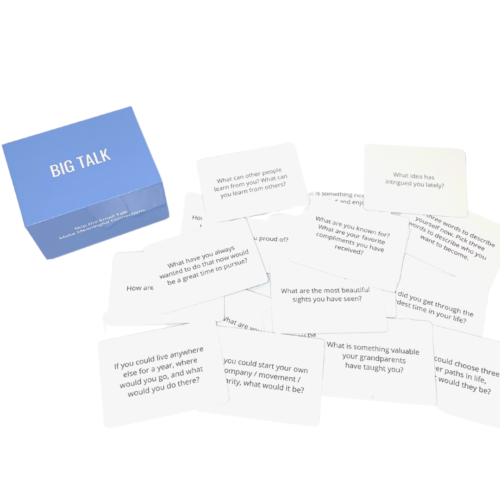
Free Big Talk Question Card Games for Community Ambassadors! To apply, send a direct message to @makebigtalk on Instagram or an email to bigtalkinquiry@gmail.com,with your name, organization, shipping address, and an explanation of how you would use the cards in your community. Thanks for the work that you do! 🙂
This week, with Valentine’s Day coming up, we’re thinking about Love! Big Talk is lucky to have been a part of a couple of marriage proposals and even a relationship blossiming into a couple having a baby girl!
Here are some deep questions to skip the small talk centered around love. Great for anyone whether couples, families, or friends!
You can check out more questions on the LOVE section of the Big Talk Questions App or in the Big Talk Question Card Game! Use code LOVE for a discount at bigtalkshop.com


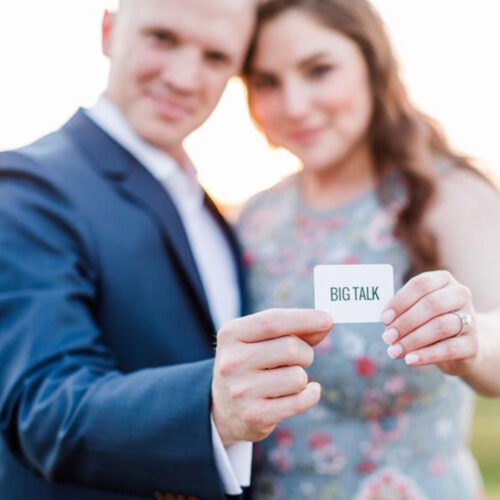

View this post on Instagram
What’s the kindest thing someone has ever done for you? Today is World Kindness Day! I’m partnering with GoFundMe to raise money for their Holiday Drive, which helps people pay for essentials like rent, food, and bills. Today only, GoFundMe is matching up to $50K in donations to celebrate World Kindness Day! Please consider donating, and look what help can do!
View this post on Instagram
This Big Talk Instagram video has generated over 20 million views, 1 million likes, and countless heartfelt comments from people all over the world who want to help this amazing 90-year-old woman fulfill the last item on her bucket list: See the Northern Lights.
View this post on Instagram
Big Talk with Sharon Dunas. Warning: Discusses suicide.
This week is National Suicide Prevention Week. Please know that you are never alone in your suffering.
If you or someone you know is struggling with thoughts of suicide, please call the Suicide and Crisis lifeline at 988.
RSVP HERE: https://partiful.com/e/yxc1flcGIxJjhnqm52YY
Join us for a unique and memorable evening! Bring your friends, family, or date, or come solo! The theme of this paint night will be: NATURE AND ADVENTURE
(TRIGGER WARNING: THIS VIDEO & POST MENTIONS SUICIDE AND EATING DISORDERS)
View this post on Instagram
This heartbreaking Big Talk conversation has generated over 1 million views on Instagram Reels. I shared this message with the speaker, Sharon Dunas, and she asked me to share this important blog post she wrote about suicide prevention:
SUICIDE PREVENTION BY SHARON DUNAS, LMFT
“Suicide is a permanent solution to a temporary problem.”
Sharon Dunas, LMFT
Mental Health Clinical Advocate – 310-207-3505 — . www.namiwla.org
https://sharondunas-mentalwellness.com/
Get tickets here: https://bucketlisters.com/experience/big-talk-music-wine-paint-night
View this post on Instagram
View this post on Instagram
What’s the Future of Behavioral Health? Come to an Ideas Exchange event and help Santa Monica decide! Behavioral health (including mental health and substance use) issues affect everybody in our community so it’s time to come together, share our thoughts, and chart a way forward. The City is hosting a series of Ideas Exchange events designed to surface great ideas from all corners of our community. We’ll hear from local and national experts and contribute our own thoughts so please join in! These events are free and open to everyone.
In partnership with Cultural Affairs, the Art of Recovery supported Big Talk Project, by Kalina Silverman (local entrepreneur, video artist, and TED speaker with 6.5 million YouTube views), will engage the community at the start of each event through Big Talk questions–meaningful conversation topics that skip the small talk.
Anyone interested in sharing their ideas about the City’s behavioral health needs is also encouraged to complete a brief online survey.
Additionally, for Mental Health Awareness Month, the City of Santa Monica is raising awareness about behavioral health through a series of free community events and activities throughout May. See details here.
View this post on Instagram
The U.S. Fulbright Program makes Big Talk in Washington D.C.!
https://www.instagram.com/p/CnNv6axOtVF/
“How are you” can be too vague of a question for people to feel like they can answer honestly. So, usually, the generic response is “Good, and you?”
Here are 7 alternative questions you can ask instead to skip the small talk. They may lead to more interesting and/or thoughtful answers!


This Thanksgiving and Holiday Season, give an extra deck of the Big Talk Question Card Game to someone you are thankful for! Or save it as a Winter gift or Christmas stocking stuffer.
Here are some ideas for how to use Big Talk this holiday season:
Just use the code THANKFUL at checkout on the big talk shop: www.bigtalkshop.com.
The BOGO discount also applies to the original Big Talk Question Card Game. Happy Holidays!
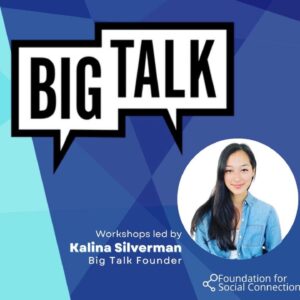


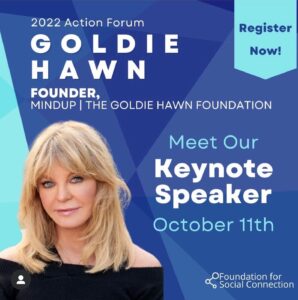
Fighting loneliness and social isolation, fostering community belonging and connection, and building global curiosity and empathy are what Big Talk is all about. Join me next week at the Foundation for Social Connection Global Action Forum for 1 of 3 free virtual Big Talk workshops. Keynote speakers of the forum include US Surgeon General Dr. Vivek Murthy, Goldie Hawn (Mindup Founder), and Julia Hartz (Eventbrite CEO and Co-founder). Register now for this free and inspiring opportunity to learn more about what it means to be truly and meaningful connected!
View this post on Instagram
Hi friends!
Thank you so much for coming out to our first-ever Big Talk Santa Monica Summer Solstice event! Fighting modern-day loneliness, fostering community belonging, and building empathy and curiosity across borders – is what Big Talk is all about!! Thank you to the 100+ people who showed up to celebrate with us. Thank you HRC Santa Monica and Santa Monica Civic Well Being partners for being our official sponsors. Thank you Alfalfa, Box Union, See Santa Monica, Boba Lab Santa Monica, Health Aid Kombucha, Steep Into It, and Cycle Bar for providing food, drinks, and decorations. 🙂
This was the first-ever public event we have held for Big Talk and we want to do more!! If you have any ideas for collaborations, sponsorships, funding opportunities, or something else – please reach out. And remember, you are not alone!! We are all in this life together.
Please, please fill out this survey so that you can come to another Big Talk event. We need to show results in order to be able to apply to host another Big Talk event. We need at least ten responses. Please be 1 of the 10 kind souls who fill out the survey. 🙂
Check out this video recap of the evening!
We have another Big Talk music event at a private residence next Wednesday, July 6th. Please reply to this email and let me know if you are interested in attending, and I will share more details.
Some ways to keep making Big Talk (as well as support Big Talk’s ability to keep running as an organization):
Buy the Big Talk Question Card Game (link to old card game on Amazon)
Host a Big Talk event at your Company / School / Organization
Testimonials from the Event
“Went to my first Big Talk event this week. It felt like an enlightened house party – thought-provoking conversation, quality people, and live music on the beach. ”
“I met so many people from the community who I wouldn’t have met if not for Big Talk. I love how the stage is set for open minds & open hearts to be in meaningful dialogue in the name of community, connection & fun. Looking forward to more events!”
“After years of isolation due to the pandemic, we need events like this more than ever now, events that bring the community together and remind people that they are not alone. It was so beautiful to be welcomed into a space that celebrates what makes each of us different and unique as well as what similarities we can realize that we all share. I’m so excited for the next one!”
@makebigtalk I just got back from a party and was thinking about some ideas for how small talk could be better if it turned into big talk! What are your suggestions?#makebigtalk #bigtalk #smalltalk #conversationswithfriends #conversationstarters #icebreakers #socialskills #communicationskills #communicationtips #communication #communicatebetter ♬ Inspiring Journey Background Music (Upbeat, Indie, Instrumental) – Instrumental – Lesfm
Big Talk co-hosted alongside Listenup.LP – These have been a magical initiative to bring people together to celebrate music, community, and connection!! Check out our artists on Instagram below:
View this post on Instagram
View this post on Instagram
View this post on Instagram
Hi friends!
It’s finally here! You can order the 2nd Version of Big Talk today!

If you enjoyed the first edition of the Big Talk Question Card Game, you will love this one!
Thank you for your support after all of these years. 🙂 Link below:
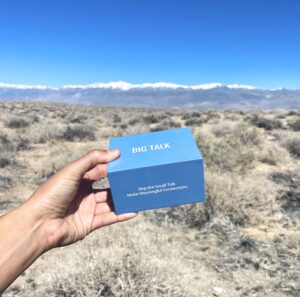
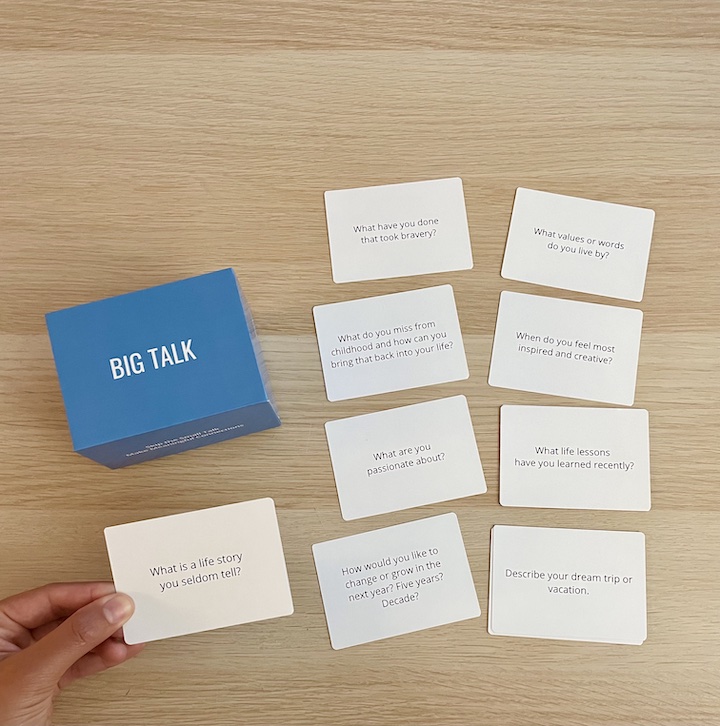
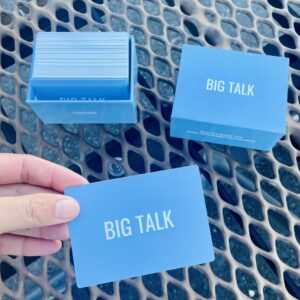
The Fulbright Program featured 75th Legacy Alumni Ambassadors answering Fulbright-themed Big Talk questions to reflect on their experiences and imagine the future of the program.
This group, which includes scientists, teachers, changemakers, and young leaders, discusses how the Fulbright Program will meet a complex and changing world.
The Fulbright Program’s impact is far-reaching and diverse. It shapes health, science, and technology; transforms communities; strengthens education; protects the planet; advances opportunity; strengthens HBCU institutions; celebrates the arts; highlights partner organizations and Fulbright Commissions; witnesses and builds history; advances public diplomacy, innovates solutions through technology and business, and champions international education.
Click to read: https://fulbright75.org/the-future-of-fulbright/

A sincere, thoughtful, and kind compliment can be magical. It has the power to change someone’s day, making them feel happier and more appreciated. There’s nothing wrong with a small talk compliment such as complimenting someone’s physical appearance… However, try thinking of a compliment as a way to dive deeper. Give a Big Talk compliment instead – and offer up a chance to make a more meaningful connection.
“Compliments can be a useful tool to nurture and enhance relationships,” says psychotherapist Lindsay Liben, LCSW. “Ultimately it contributes to deeper, more intimate connection.”
Instead of saying “Thanks for hosting a great night,” say “I appreciate how you made sure to make everyone feel welcome by introducing us one by one. Also, I could really taste the time and care you put into your family’s recipe!” Consider asking a follow-up question as well such as “What inspired you to create such a magical evening?”
Instead of just saying “I like your shirt,” you could say “Your yellow shirt combined with your sunny smile brightened up my morning!” Adjectives create more memorable compliments. (Psychotherapist Lindsay Liben, LCSW)
Sometimes, a handwritten note can be the best way to give a compliment. It allows you more time and thought to express how you deeply feel towards someone.
Although it may seem awkward at first, complimenting a stranger can feel especially sincere to them, putting positive energy out, and leading to new relationships. It can make someone’s day and also make you feel better too! Next time you notice something you appreciate in someone, instead of hesitating, just compliment them!
Big Talk is about skipping the small talk to make more meaningful connections. Learn more at www.makebigtalk.com and follow Big Talk on Linkedin to stay in the loop.
Are you or someone you care about considering making a career change? Here are some Big Talk Questions you can ask yourself and others that can help guide you through different transitions:
For inspiration, check out this Big Talk video from many years back about following your childhood dreams. 🙂
With the onset of fall, people retreat indoors to connect with their family and friends for the holidays. However, it is important that we maintain another kind of connection – our connection with strangers. Below are some proven benefits of talking to strangers.
Humans are wired to connect, and this connection affects our health. Recent research shows that feeling connected can help people maintain a healthy body mass index, control blood sugars, improve cancer survival, decrease cardiovascular mortality, decrease depressive symptoms, mitigate post-traumatic stress disorder symptoms, and improve overall mental health. Talking to a stranger is your first step towards improved connection and well-being!
A U Chicago Study found that people mistakenly believe other people don’t want to be approached for conversation. Yet, if they actually do approach people, they are much happier because of it. So, next time you feel hesitant to strike up a conversation with a stranger, take a deep breath, smile, and just say hi. You might be surprised by how much happier you feel!
Casual connections with people we encounter in the course of daily life can give us a sense of belonging to a community. They also inspire us to venture beyond our comfort zones. Next time you’re out, strike up a conversation with a neighbor or shopkeeper.
Talking to someone else and stepping into their world can increase your empathy for others and make you feel more spiritually connected to humanity as a whole.
If you talk to a stranger, you are more present, because you are in a new situation. It can help you “get unstuck” from your current mental state and see the world in new ways.
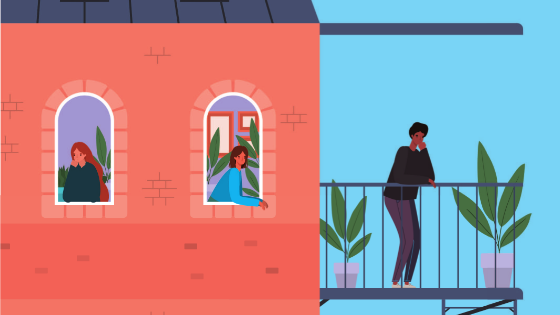
Try these simple ways to become more approachable and invite in more opportunities for Big Talk!
Look people directly in the eye with a sincere smile, and you will be surprised by what kinds of conversations and interactions your warmth will invite!
When you meet someone new, immediately ask their name. Then repeat it back to them and introduce yourself. People love to hear the sound of their name and it helps them to feel seen and heard.
If you look busy or in a rush, nobody will have time to stop and talk to you. Stop living your life as if it is a constant emergency… Instead, slow down and notice the people in the world around you. The person you usually rush past on your way to work could end up becoming a close neighbor and friend.
You’re more likely to meet people in places where people go to enjoy leisure time. That includes parks, beaches, live concerts, meetups, and classes. Happy people are more open to approaching each other because they have already set their egos and worries aside.
If you’re engaged in an activity, it makes it easier for someone to ask you a question about it. For example, you could be walking your dog, reading a new book, painting or playing music in the park, or trying out a new gadget or piece of athletic equipment. Doing something interesting yourself will naturally spark the curiosity of others and invite engagement.
You just downloaded the new Big Talk Questions App. Now what? Read below for ideas on how to play!
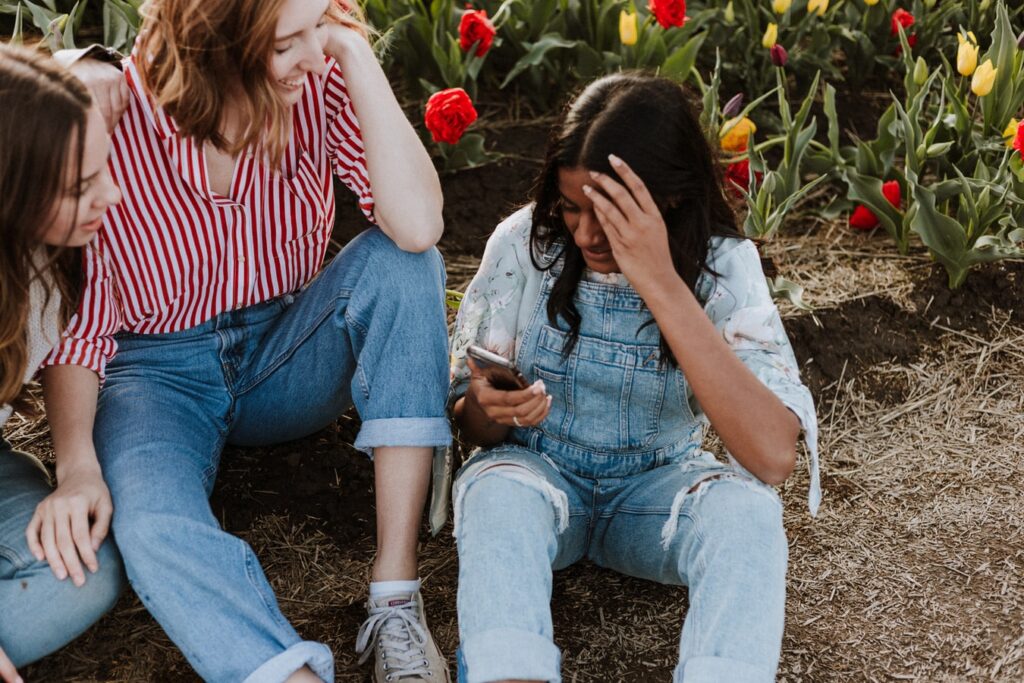
What else would you like to see in the app? Let us know here!
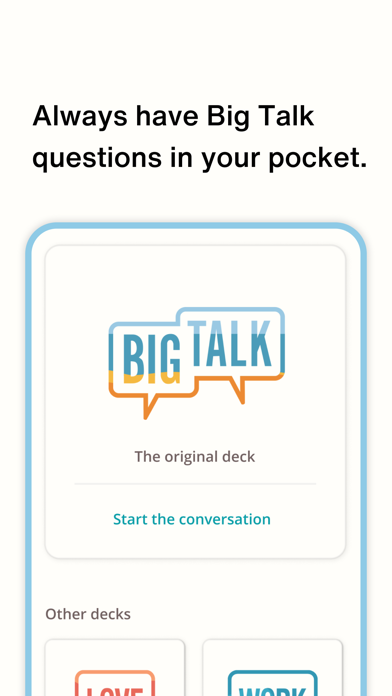
Play with friends, family, dating interests, travel buddies, coworkers, classmates, students, and more! You can also use these as daily self-reflection questions.
Download on the App Store or Google Play.

As we navigate our way through the 21st century, our experts on human psychology and socialization have been pointing to the steady emergence of a new type of crisis—a crisis of social connection. Although we live in an age where connecting with someone on the other side of the globe can be done with the press of a button, people all over the world are expressing an uncomfortable sense of loneliness in their lives.
Even more disconcerting is the fact that loneliness can hurt us on a cellular level, and reduce our lifespans.
What can we do to fight off this epidemic? The United Kingdom and Japan have begun to develop a plan.
The UK’s Prime Minister has long had positions in their cabinet like the Minister of Health and the Minister of State for Housing. But in 2018, former Prime Minister Teresa May introduced a new ministry position in an effort to address a rapidly emerging crisis of loneliness in the country. Thus, the Minister for Loneliness was established. The decision to create this new position was based on alarming new data suggesting that about 9 million people in the UK often felt lonely, as well as a mounting body of evidence suggesting that loneliness can impact our health and lifespan.
So far, the various people to take up the position have taken a series of actions. In 2017, a report was compiled, which characterized the severity of the situation, emphasized a call for action on the part of the UK’s government, and outlined potential ways to address this newly recognized public health epidemic. 2018 saw the government take their first big step when they launched the inaugural loneliness strategy, which laid out a plan of action. It included measures like the development of reimagined community spaces, public health campaigns, and the framework to improve social services. In the following years, the #LetsTalkLoneliness campaign was developed and millions of Pounds were funneled into the cause.
Similarly, in response to worrying figures on suicide and social withdrawal, Japan welcomed its first Minister of Loneliness in 2021.
The idea of a Minister for Loneliness feels promising, but we’ve yet to see how much of an impact the position will truly have on UK citizens’ levels of loneliness. If it proves to be effective, perhaps it can stand as a beacon for other countries, encouraging them to face their own crises of social connection. The United States, for instance, has been seeing a steady increase in expressions of loneliness—a statistic that has only been made worse by the pandemic. Recent reports indicate that around 3 in 5 Americans would describe themselves as lacking companionship, which has been partially attributed to our changing workplace culture.
While your country may not have its own public official to address social isolation for some time, there are plenty of resources and tools out there that can help you and the people around you start living a more connected life. After all, we are wired to connect. The best place to start is to be involved in more meaningful conversations in our daily lives. Recent research into the impacts of taking part in small talk vs having substantive conversations with others has shown a heightened sense of well-being in the latter. With this knowledge, the question then becomes: How do I begin having deeper conversations?
The first step would be to try and place yourself in more situations where meaningful conversations could arise, like using Meetup to join a local group of people with similar interests as yourself. But even just being around others more often might only lead to more small talk if not approached in the right way, which can be especially difficult for more introverted people to navigate. For those situations where you are with new or unfamiliar people that you would like to develop a deeper connection with, Big Talk can be your go-to tool for success. The questions were created to help people open up with each other and feel more comfortable discussing the subjects that really matter to them. Below are a few more simple suggestions for fighting loneliness:
For more info on how to bring Big Talk into your life, check out our socials (Facebook & Instagram), and feel free to contact us with any questions!

It’s not easy to make a meaningful connection with someone you only know through a screen. However, with the world opening up, there are opportunities to re-engage with your coworkers in a hybrid workplace model. How we choose to rebuild those connections is up to us.
We all miss aspects of our lives pre 2020. Some will reemerge, but others will profoundly shift – especially those aspects related to work. With around 1 in 4 Americans projected to work fully remotely in 2021 after the pandemic, home offices and video calls have replaced open offices and meeting rooms as the new norm. For many of us, working from home has had a host of benefits, from skipping the daily commute to dressing more comfortably while on the clock. It’s no surprise that two-thirds of remote employees would like to continue working from home, even as quarantine restrictions are lifted and vaccines are administered all over the country.
Employers are finding ways to accommodate these preferences. However, many employees, employers, and companies are suffering from digital malaise especially during this remote world re-order. How do we stay meaningfully connected even when we are physically distant? How do we build bridges to each other and increase human awareness and understanding?
A widely discussed solution to workers’ hesitancy about returning to the office is for companies to establish a hybrid workplace. This situation would require employees to split their time between the physical and virtual office spaces each week. The reasoning behind this middle-ground approach is that it would give employees the flexibility and comfort of working from home, while also encouraging stronger connections between coworkers. Although the hybrid workplace aims for the best of both worlds, it comes with its own set of potential issues.
A lot needs to change to make the hybrid model work. Without human interaction, culture becomes difficult to maintain. Morale and retention can suffer. Furthermore, recent insights into the impact that working from home can have on our mental health and overall well-being are giving cause for concern. As the days of in-person interaction with our coworkers seem to be slipping away, people are feeling increasingly isolated and disconnected from their teams. Spending a few hours each week in the office isn’t likely to help maintain the social relationships and team building that an entirely in-person office can nurture. We need to begin seriously re-thinking the way we build relationships and communicate in meaningful ways while at the office.
There are incredible technological solutions that can help make hybrid work, but at the same time, there must be intentionality around how we use them – especially to help foster meaningful relationships. Video calls with your teammates can be a great opportunity to spark conversations that allow everyone to open up. However, these meetings all-too-often begin awkwardly while people wait for everyone else to join the virtual room. Then, after the subject at hand has been discussed, it’s not unusual for the call to end abruptly with a brief wave and goodbye. These stiff, rushed interactions can be devoid of the social formalities and nuances that humans have developed over thousands of years—the result being that people are left feeling uncomfortable and socially distant.
Big Talk wants to help make the hybrid model work. We aim to help address these gaps in interpersonal relationships that will result from hybrid models.
Although creating small talk around what everyone did over the weekend can lead to some discussion, it usually dies off pretty fast. Instead, try asking teammates some of the meaningful questions from your Big Talk cards, or those topics and activities suggested through the Big Talk for Work application (coming soon).
Some examples of Big Talk Questions you can ask include:
These questions were developed specifically to create open and honest conversations, which draw more interest since they encourage discussion about meaningful and personal topics. More importantly, Big Talk questions are universal, so that everyone on your team can feel connected and relate.
For the smooth integration of Big Talk questions into your video calls, try setting up a plan with your coworkers to reserve the first or last five minutes of the call for some deeper conversation. Big Talk questions can even be brought into the hiring and onboarding process to help your company conduct more in-depth interviews and training.
On the days when your team is in the building, Big Talk can help facilitate interactions that may otherwise feel awkward or stale. During your offsites – prime times when coworkers are physically present, maximize the opportunity for creating stronger connections during these social activities by fostering active empathetic listening and encouraging non-work related conversations that go beyond small talk. Set the groundwork by introducing concepts of curiosity, intentionality, alignment, and vulnerability. These conversations will form the groundwork to help your team form stronger bonds whether you are connecting on or offline.

As break rooms shift to chat rooms, and as private messages replace watercooler conversations, it seems that a hybrid office will be the workplace of the future. Knowing that, it’s up to us and our employers to begin adapting work culture into something fit for the post-pandemic era. Something that should address the novel issues presented by a partially remote work environment. In a year when people are interacting with their coworkers less on average, carving out extra time to establish meaningful moments at work is vital to fostering the sense of belonging that most of us crave when it comes to our careers.
For an easy way to begin feeling reconnected at work, we encourage you to check out Big Talk. If you’re already working in—or are about to shift to—a hybrid workplace, shoot us a message and we can work on bringing Big Talk learning programs into your workplace!
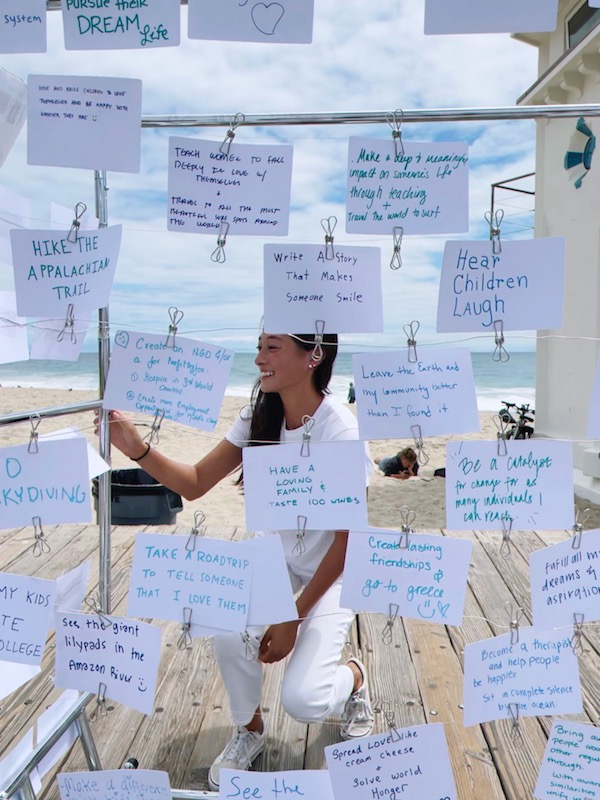
Our first in-person Big Talk event after a year of social distancing! We asked strangers to stop by and skip the small talk to answer: “What do you want to do before you die?”
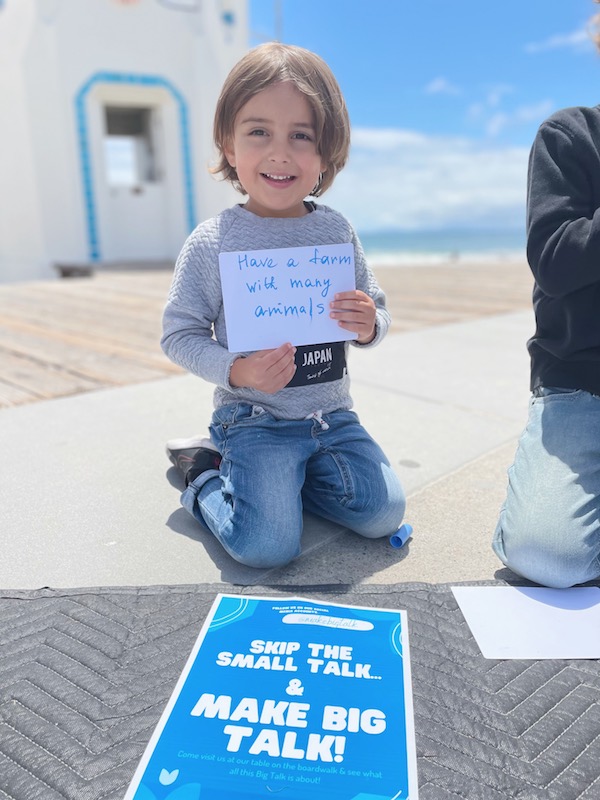
Young children, the elderly, and people from around the world participated.
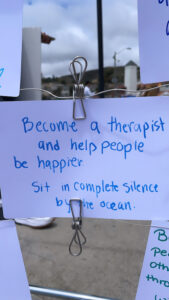
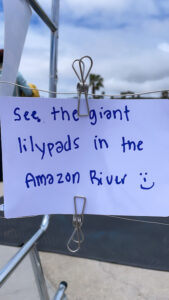
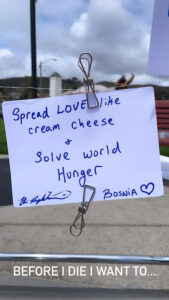
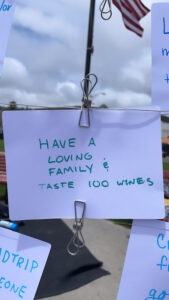
It felt special to connect in person again and see people’s handwriting after a year of typing.
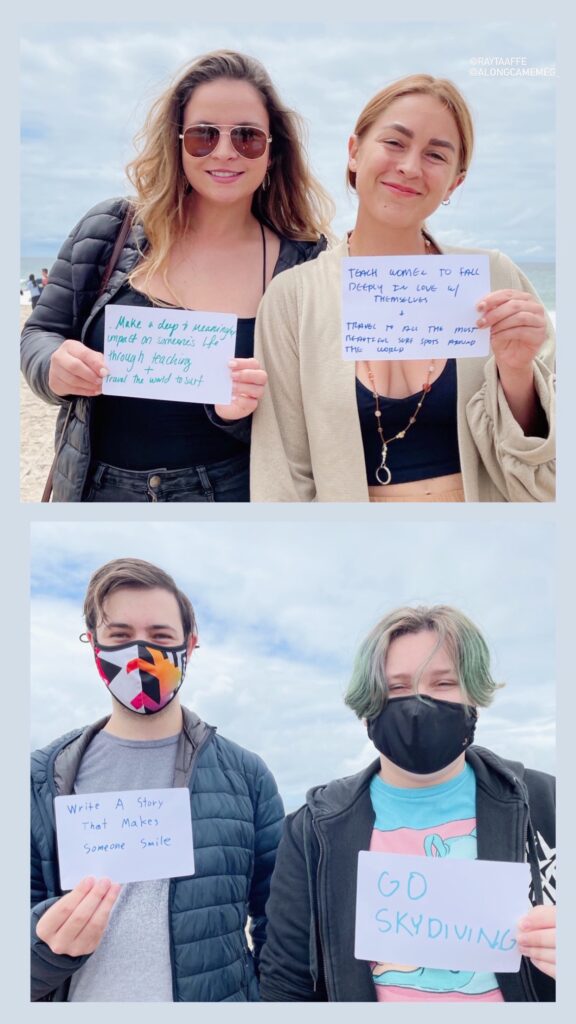
Huge thanks to the Big Talk intern team for making this all happen: Serenity Islam Angelica Zdzienicki Gage Greenspan

We filmed some videos and got some meaningful stories and laughs as well!
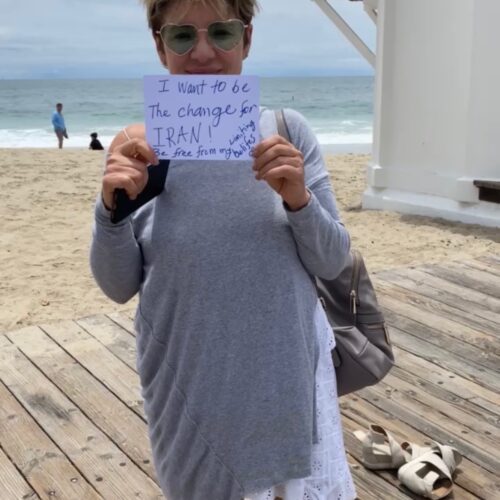
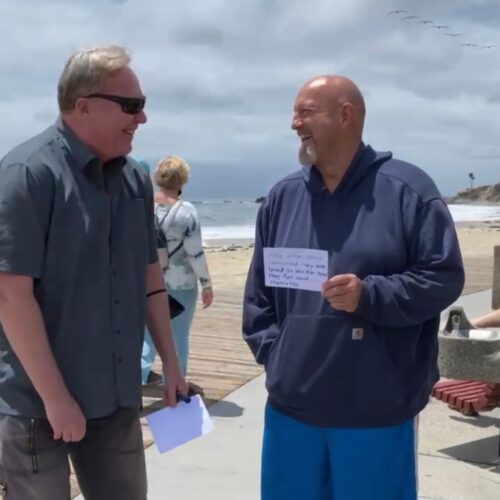
It was a beautiful day at Laguna Beach. Where should we do an interactive pop-up next?
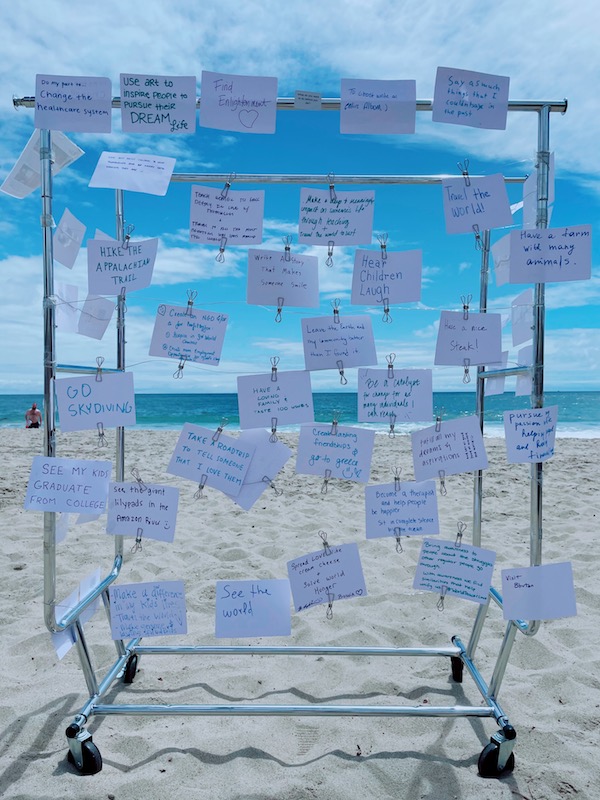
P.S. Please follow Big Talk on Linkedin, YouTube, and Instagram for more exciting stranger videos and educational content for work coming soon! Or sign-up for our newsletter!
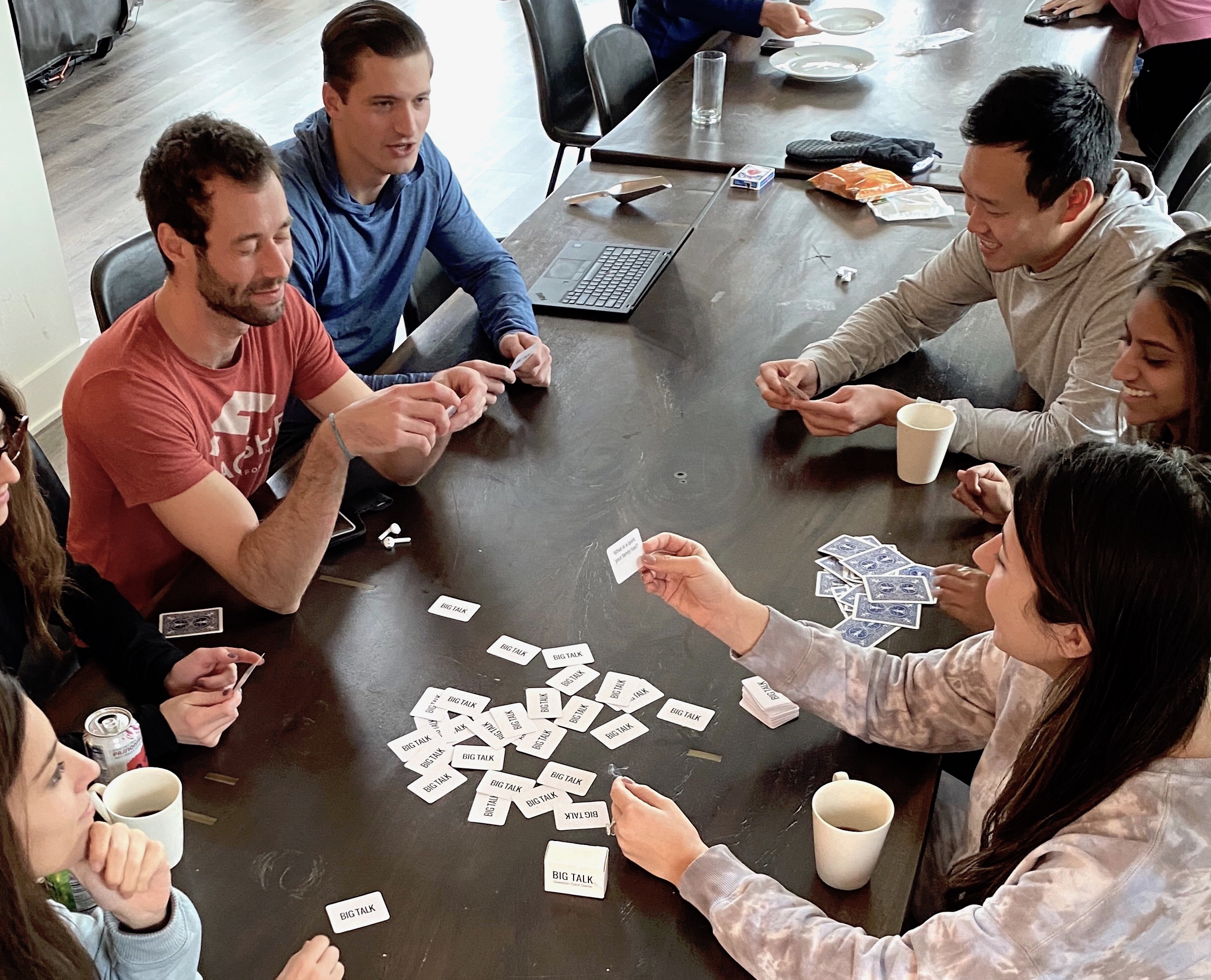
After a year of limited socializing, you are feeling ready to skip the small talk and reconnect with people.
Maybe you have an upcoming work function or family gathering, and you want to make sure it is a meaningful experience. Perhaps you just got your own pack of Big Talk cards delivered and are excited to try them out…So now what? Unlike other card games, apps, and communication tools, Big Talk doesn’t come with a lengthy rule book—or any set rules, for that matter. You won’t find yourself reading instructions aloud, hoping everyone is following along. Using Big Talk is as simple as asking a meaningful question. To help you find the best way to bring Big Talk into your life, here are 6 favorite suggestions:
Odds are you’ve heard of the calendars where you rip off a page each day to reveal a new joke, inspiring quote, or even a Shakespearean insult. But have you tried it the Big Talk way? Every morning, look at the top card of the deck and take a minute to ask yourself that question. It can be an excellent way to pause for a personal, reflective moment. Asking yourself daily Big Talk questions can help you focus on your goals and wellbeing for the rest of the day.
Do you dread having to come up with small talk while you’re on a date? It can make you feel more nervous and is ultimately not very helpful for establishing anything more than a surface-level connection. Bringing Big Talk into play gives you and your date the opportunity for an exciting, intimate activity that will allow you and your partner to create a deeper, more meaningful connection.
When you’re organizing your next event—whether it’s for a school club, community gathering, or work function—bust out Big Talk as the ice breaker. We recommend creating smaller groups of around 3-6 people (depending on the size of the event), to give everyone the opportunity to answer some Big Talk questions. The meaningful conversations that follow can lead to stronger interpersonal connections and a more comfortable atmosphere.
Take Big Talk to school with you! Ask your favorite teacher if your class can start off the day by answering Big Talk questions. Not only can these discussions create better connections between classmates, but they are also a fantastic way to jump-start everyone’s critical thinking skills, leading to more attentiveness and eagerness to participate in class activities.
If you and your friends/family have a recurring game night, try introducing Big Talk the next time everyone meets up. Although encouraging deep discussions might not be what the group is used to from game night, it can be a worthwhile opportunity. You may learn things about your friends and family that you wouldn’t have known without asking Big Talk questions. Once everyone has had this chance to open up with their loved ones, then the night can get back to your crew’s usual game of Monopoly, Cards Against Humanity, or DnD with everyone feeling just a little more connected than when they arrived.
Whether you’re befriending someone at the bus stop, at your hostel or bed and breakfast, or at dinner with 10 strangers, bring out Big Talk. Chances are, you might learn more about someone in five minutes, than after knowing them for months or even years!
*One way to help facilitate Big Talk is through the Big Talk Question Card Game.
Stay tuned for our new Big Talk Question app and Big Talk for Work Program – Coming soon!
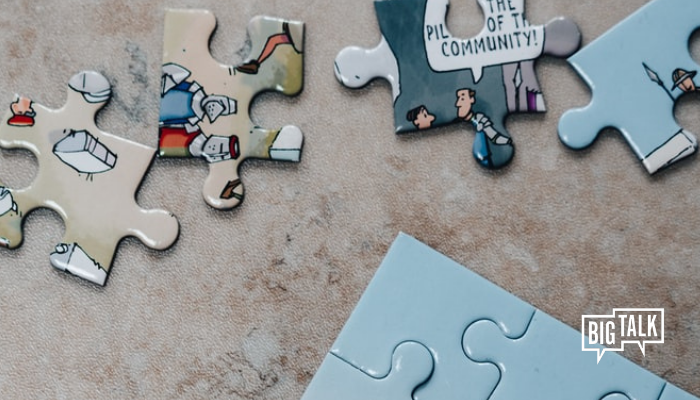
What makes you feel most alive? Where do you find peace when times get hard? What are you curious about lately? Who do you need to get in touch with because it’s been too long?
– “Big Talk” moves past small talk to facilitate more meaningful conversations through questions that are open-ended, universal, and elicit stories.
As we emerge from our battle with a global pandemic, we face another set of challenges – one rooted far more deeply in our culture. Division. Alienation. Disconnect. We saw these tensions come to a head in 2020: glued to our screens, we watched as the barriers that divide us — from racial to political, from socioeconomic to generational – forced us further and further apart.
It’s no surprise that people feel lonely and more alienated than ever. But it’s critical to remember that the end of COVID-19 doesn’t mean we’ll resolve those feelings overnight: Many of us grappled with isolation and loneliness even before we were confined to our homes. We’ve all longed for meaningful connection and wrestled with feeling like we don’t belong in our nearest communities.
These feelings are especially prominent in our daily working environments, despite research suggesting that employees care more deeply about their workplace community than ever. Without meaningful relationships built on sincere and substantive communication, employees struggle to feel like they are seen or heard at work. Trust, psychological safety, and belonging, critical features of highly engaged workplaces, are nearly impossible to achieve when people aren’t sharing their authentic selves.
That’s where Big Talk comes in. Although our world has suffered fissures in human connection, relationships aren’t immune to repair. Big Talk is deeply dedicated to helping people in communities move past small talk to build more meaningful relationships.
Big Talk aims to address the following societal needs:
This past year alone, Big Talk led programs for U.S. veterans, prisoners, female entrepreneurs, and university students around the world –
We’re now focused on the workplace.
Leveraging organizational psychology and subject matter expertise, Big Talk embeds behaviors and habits into workplace culture that transform everyday interactions into opportunities for deeper connections. Big Talk provides the tools and resources necessary to strengthen the individual voices of all members of a community, empowering everyone to join the conversation.
The result? A professional environment characterized by trust, belonging, and psychological safety; workplaces where, instead of relying on small talk, employees strive for Big Talk.
Follow us to skip the small talk and make Big Talk instead.
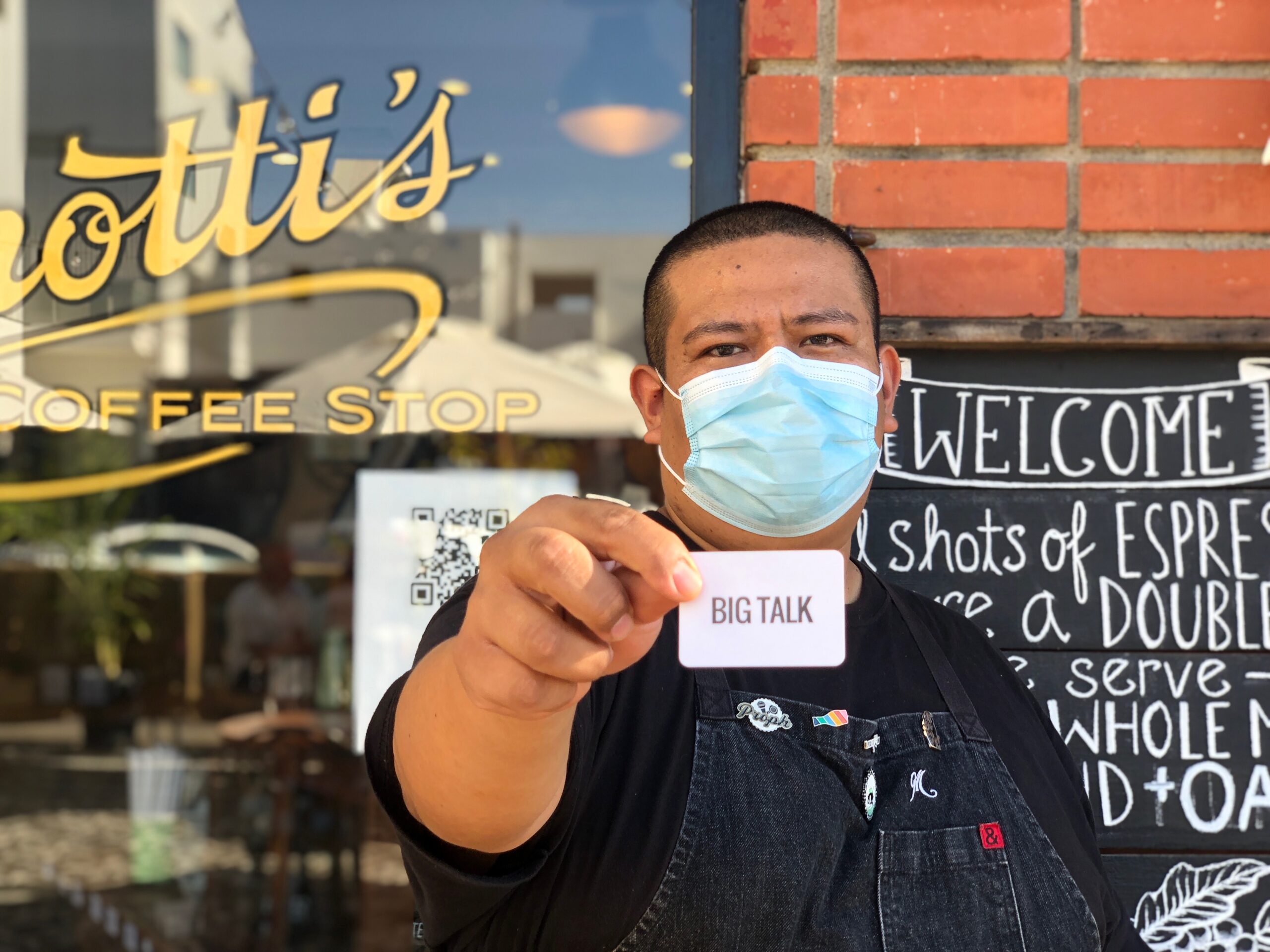
Here are some highlights for Big Talk in 2020!
1. News Features about Big Talk in Forbes (36 Questions to help you Live Longer), LA Times, Voyage LA, and Today.com.
2. Virtual Events for Veteran Rites, Bridges in Tennessee, Twine, IG Live with Justin Jesso and Leigh Miron, Northwestern University, William Angliss Institute Australia, U.S. State Department, The Riveter, the Chicago Women’s Exchange, Palisades High School, and more!
3. Stories from Big Talk Road Trip across America, Big Talk Coffee Shop.
4. Testimonials: A new Big Talk marriage proposal, Native American organization makes Big Talk, Harvard Medical School makes Big Talk –
..and so much more! Looking forward to 2021!
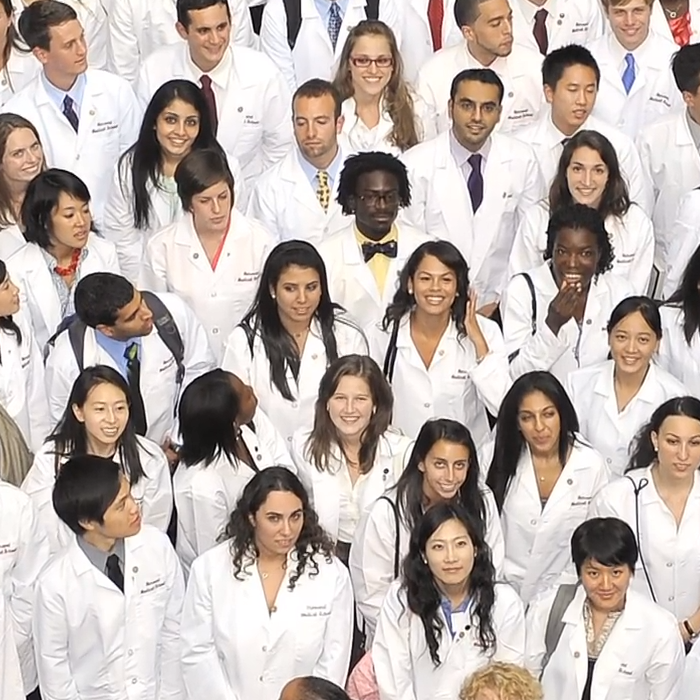
150 future doctors “made Big Talk,” for Harvard Medical School’s 2020 new student orientation. Last year, students participated in the Big Talk activity in person. However this year, programming was virtual. Students were first played the “Big Talk Before I die…” video. They were then split into breakout groups of 7-8 individuals, where they discussed the following Big Talk questions:
One student commented, “Big Talk helped a LOT to break down potential barriers and make us all feel a lot more comfortable. The breakout group strategy was helpful in that it gave each of us a lot of choice about what we wanted to share with the group and how vulnerable we wanted to be, which worked out beautifully as people really started to open up over the course of the discussion, providing a great foundation for subsequent reflective sessions in our first week.”
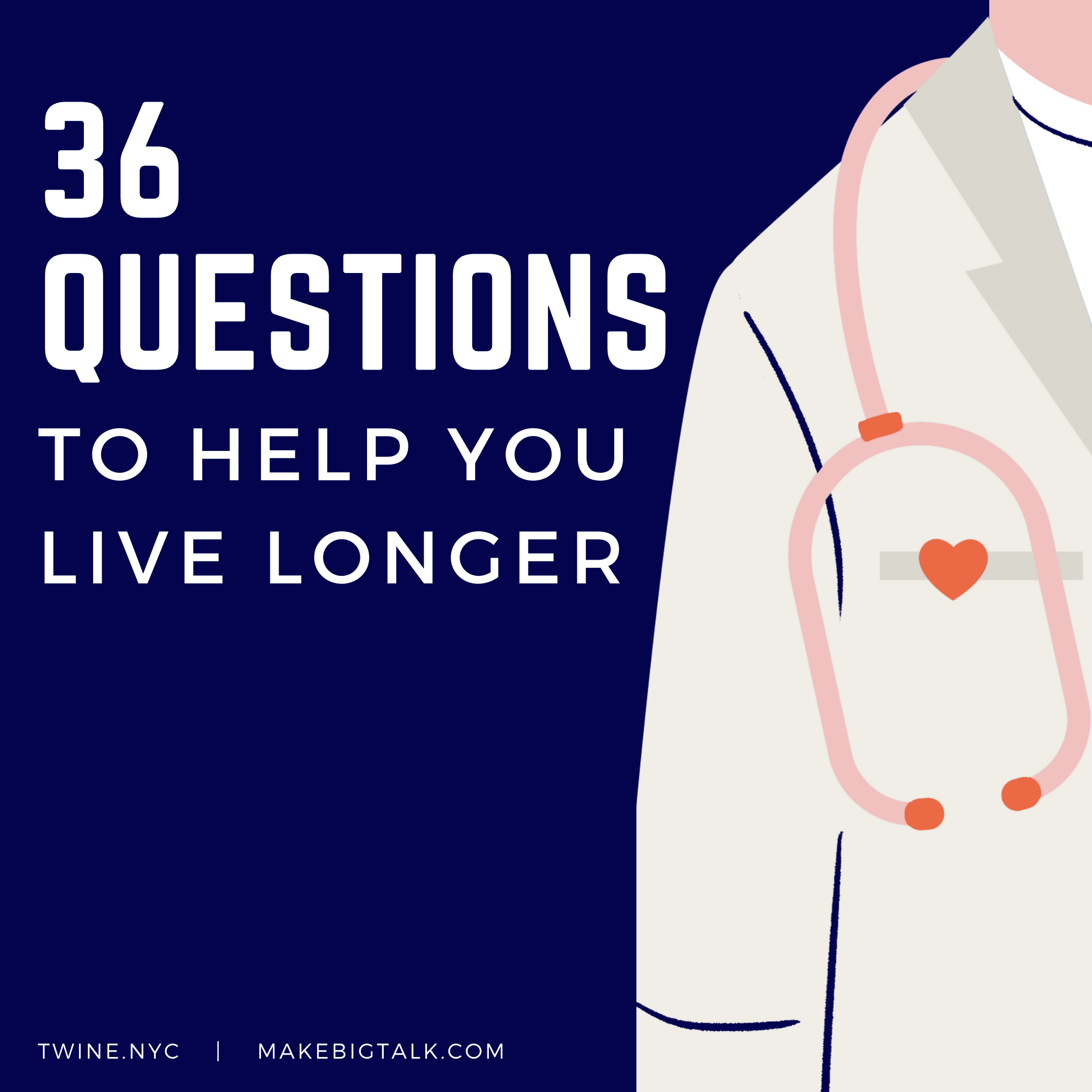
This article was originally published in Forbes. Check it out! “36 Questions to Help You Live Longer” By Kalina Silverman and Diana Rau
2020 marks the 82nd year that researchers at Harvard University began following 724 college age men as part of the longest running study in history on human development. Their objective? To determine what factors lead to healthy and happy lives. Key results suggest that happiness and health do not result from fame and fortune. Instead, as the Director of the Harvard Study of Adult Development Robert Waldinger put it, the clearest message to emerge is, “Good relationships keep us happier and healthier. Period.”
Based on converging findings from this study along with several others reporting related results, we designed 36 questions to spark conversations to help you deepen your present relationships and build meaningful new ones — which in turn may help you live a happier, healthier, and longer life!
Build Strong Relationships
“Close relationships…are better predictors of long and happy lives than social class, IQ, or even genes.” – Harvard study on adult development. Our first set of questions is dedicated to sparking conversations that may help you strengthen your relationships.
1. How many close friends do you have that you could turn to in a crisis?
2. Is there anyone you would like to have a closer relationship with? How might you create a closer relationship with them?
3. If your relationships were flowers in a garden, which ones are blooming from care? Which ones are withering away from lack of attention?
4. Are you afraid of letting others get close to you? Why?
5. Who in your life do you trust the most and what did it take to build that trust?
6. What places or communities do you turn to for peace and comfort?
7. What do you do to create a strong community that you can call your own?
8. Are there any relationships that matter to you that you’re unhappy in?
9. If you could choose one person you could strengthen or improve your relationship with, who would that be? What’s a small action you can take today to do that?
Live Your Purpose
Research from University College London found that people with a greater sense of purpose in life lived longer than those with the lowest sense of purpose.
10. What is your purpose in life? What are you meant to do in this world?
11. What do you do daily that strongly aligns with your sense of purpose? What doesn’t align?
12. What have been your greatest failures? What have they been preparing you for?
13. What, to you, is a life worth living? Reflecting on the last week, what comes to mind as moments where you felt strongly you were living your best life? What are moments when you felt you were wasting life?
Help and Support Others
A study conducted with the elderly showed those who helped others lived longer lives.
14. How are you helping others? How can you do more to help others?
15. If you could change one thing about the world, what would it be?
16. When was the last time you served someone at great cost to yourself without keeping track of the cost?
17. In what ways are you using your gifts to help others? In what ways are you not?
18. What causes are you most passionate about?
19. How have your difficulties equipped you to serve others?
Laugh Often
Researchers from Norway found that women who rated high for humor had a 48 percent lower risk of death from all causes.
20. Who is the funniest person you know? What makes them funny?
21. What made you laugh or smile today?
Stay Young At Heart
Research from University College London showed people who felt younger had a lower death rate than those who felt their own age or older.
22. What activities make you feel younger?
23. What was an activity that brought you incredible joy as a child that you don’t do anymore?
24. What have you learned recently from someone from a younger generation than you?
25. Do you seek to cultivate friendships with people of all different age groups? What do you find most rewarding from your friendships with people younger than you?
26. How are you getting better every day?
Nurture Optimism
A Harvard study found the most optimistic people had a 16 percent lower risk of death from cancer, a 38 percent lower risk of death from heart disease and respiratory disease, and a 39 percent lower risk of dying from stroke
27. What are you excited about? What gives you hope? What are you optimistic about?
28. Can you share a personal experience that has given you hope in humanity?
29. Think of some negative things that happened to you recently. What were the silver linings?
Never Lose Your Sense of Wonder
Research from UC Berkeley shows that experiencing awe can actually impact health by reducing inflammation and lowering the risk of diabetes, heart disease, and Alzheimer’s.
30. What gives you a sense of awe?
31. What’s one thing you experienced recently that made you feel a sense of wonder or awe?
Practice Gratitude
Studies from the University of Pennsylvania and many others have shown that gratitude is strongly and consistently associated with greater happiness.
32. What are you most grateful about in your life right now?
33. Who are 3 people you’re grateful for? Why?
34. How do you practice gratitude in your everyday life?
35. What about today has been better than yesterday?
36. What choices have you made in the last five years that you’d thank yourself for making?
This article is the brainchild of Kalina Silverman, founder of BIG TALK & Diana Rau, cofounder of twine. Together, we’re hosting LIVE, short video convos between amazing humans from around the world on the 36 Questions above, to help us ALL live longer. 👉🏾 Join us for conversations, happening now!
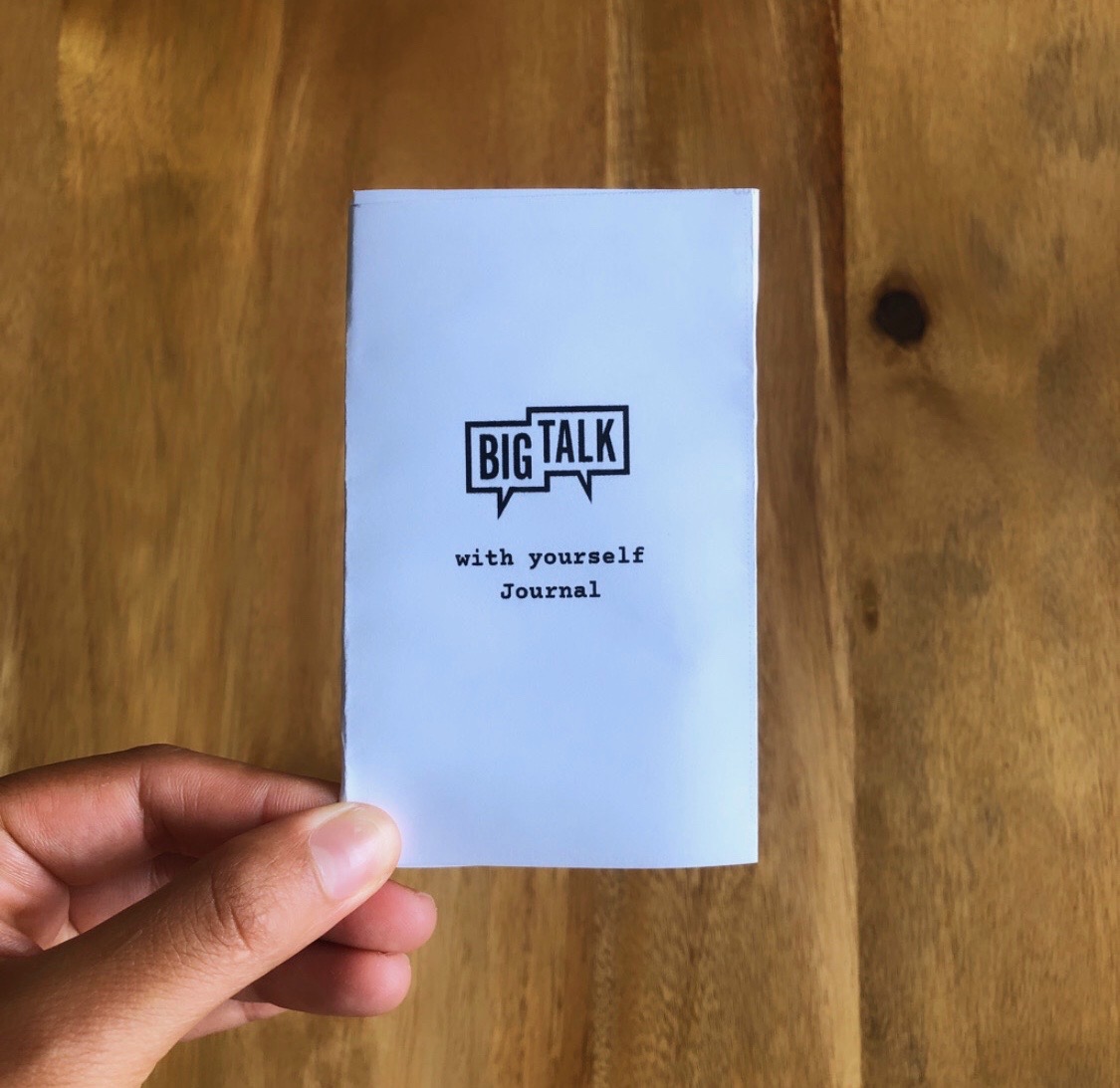
A Big Talk journal is a great way to have a deep conversation with yourself and reset your mind. Download here: www.bit.ly/bigtalkjournal
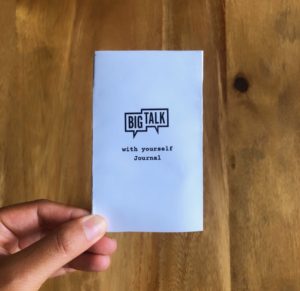
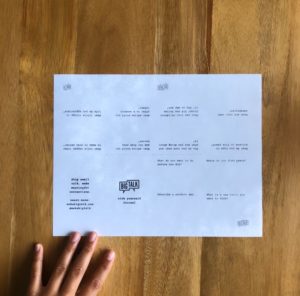
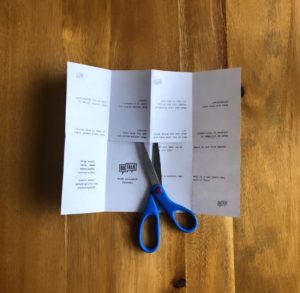
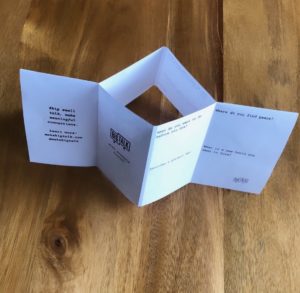
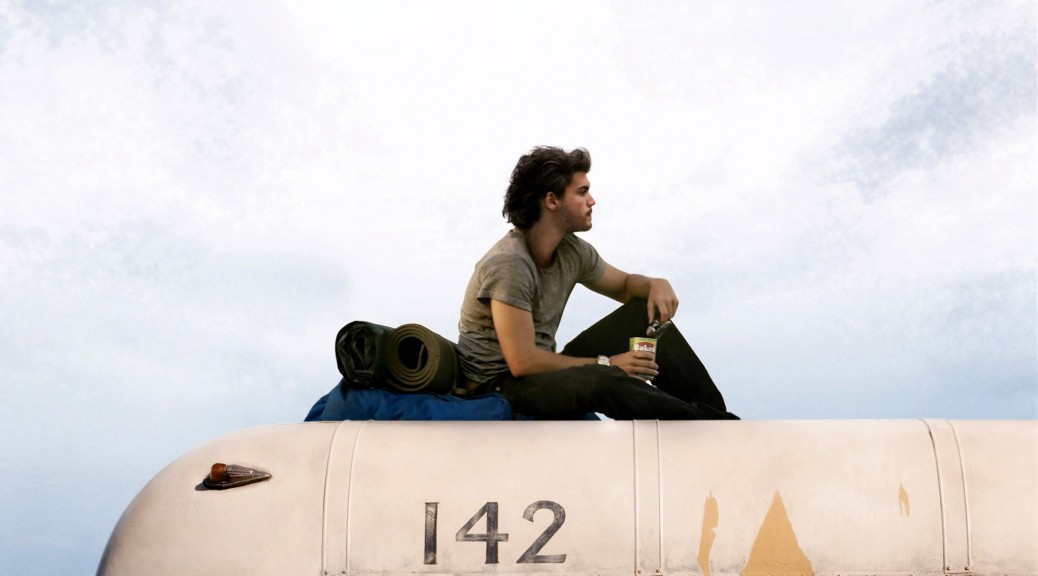
My motto during this quarantine and time of encouraging social isolation is inspired by Christopher McCandless’s (Into the Wild) realization after living in social isolation for 114 days: “Happiness is only real when shared.” And as we struggle at home through the anxieties that quarantine life may present us, Anna Draper’s sentiment in Mad Men also strikes a chord with me: “The only thing keeping you from being happy is the belief that you are alone. ” Despite this temporary period of “social isolation” we are all going through, we are actually experiencing an unprecedented reign of global social solidarity and togetherness!
I’m often reminded that loneliness kills. Compassion saves lives. So please remember, no matter what you’re going through right now, you are very far from being alone. We can use this opportunity to check in on one another, build new relationships, and strengthen existing ones in spite of physical social distancing.
I am happy and relieved that most people I know are so far healthy, in some sort of company and safe with access to food and shelter (see below this article some ways to help those who aren’t). While we are together alone, here is a list of “Big Talk” questions we can ask our quarantine buddies at home/while on a walk – or friends, family, lovers, classmates, and co-workers over video calls (perhaps people we haven’t caught up with, in a while) to help us remain hopeful, connected, reflective, and strong:
So far the only known model to prevent the spread of Corona is serious social distancing. But humans are meant to be social! So here are ideas that have worked for me that might work for you to help you continue to deepen and diversify your relationships – to become more socially involved while isolated:
I’ve found that taking part in these activities has shown me that we don’t need a lot of material things when it comes down to it – We just need each other!
Regardless of race, socioeconomic status, workplace hierarchy, geography, religion – we are all going through this unprecedented time together, experiencing similar life changes, and likely sharing common feelings. We have the same fears, concerns, coping mechanisms, and joys. Perhaps the kindest thing we can do right now is radiate hope, humor, inspiration, and compassion towards each other, and continue to strengthen our social solidarity and knowledge so that we can prepare for whatever comes next!
Some Big Talk related things I’m working on during this time:
***For those who are less fortunate and more preoccupied with survival, there are programs to help people feed their children and save small businesses. If you are financially secure, consider donating to your local food bank / feedingamerica, buying gift cards to your favorite small businesses, or donating blood (there is a critical need right now), among other ideas.
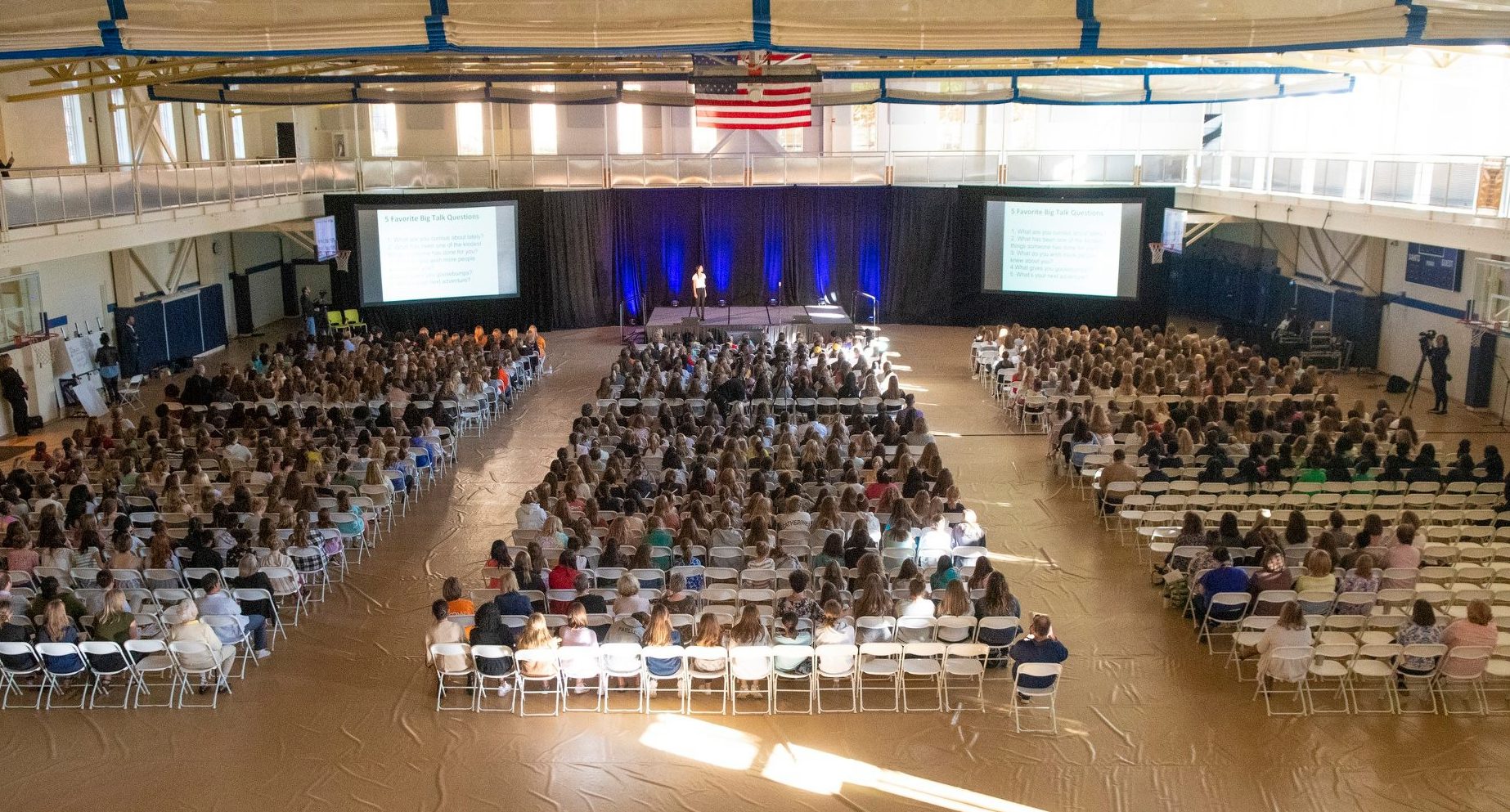
On the UN’s “International Day of the Girl, St. Catherine’s School in Richmond, Virginia hosted a special day of celebration for 1000 teenage girls. Kalina was invited to speak about Big Talk and how it can enhance building more open and meaningful relationships both at school and at home. After the speaking portion of the event, girls “made Big Talk” in their homerooms and wrote down and shared their own Big Talk questions with one another.
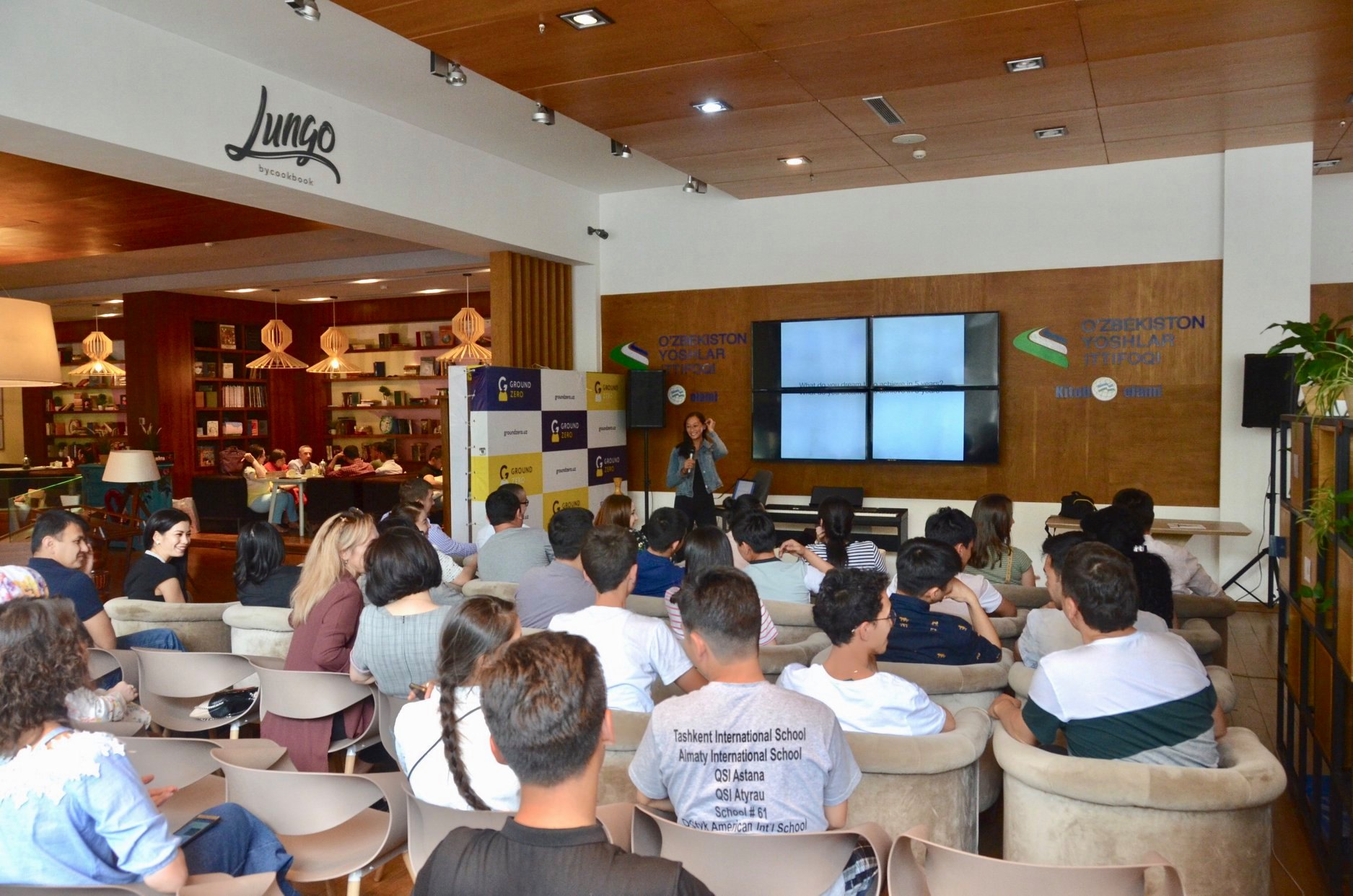
6/9/2019 – The US Embassy in Tashkent, Uzbekistan hosted Kalina Silverman to present Big Talk to exchange alumni and local audience members at GroundZero Kitob Olami. Guests learned how to “make Big Talk,” answered Big Talk questions in small groups, shared videos and personal stories out loud, and wrote their own unique Big Talk questions.
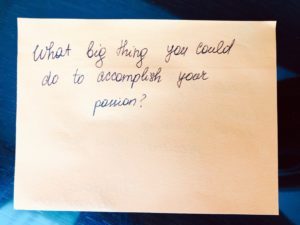
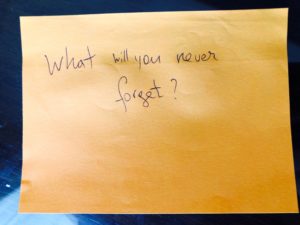
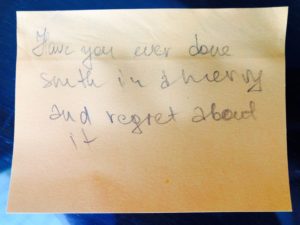
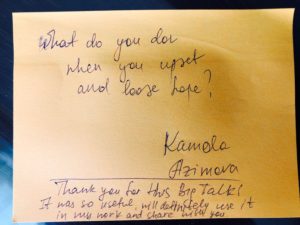
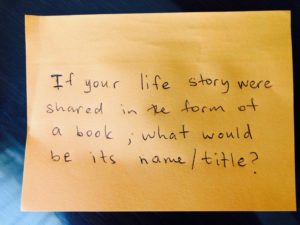
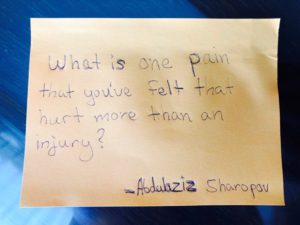
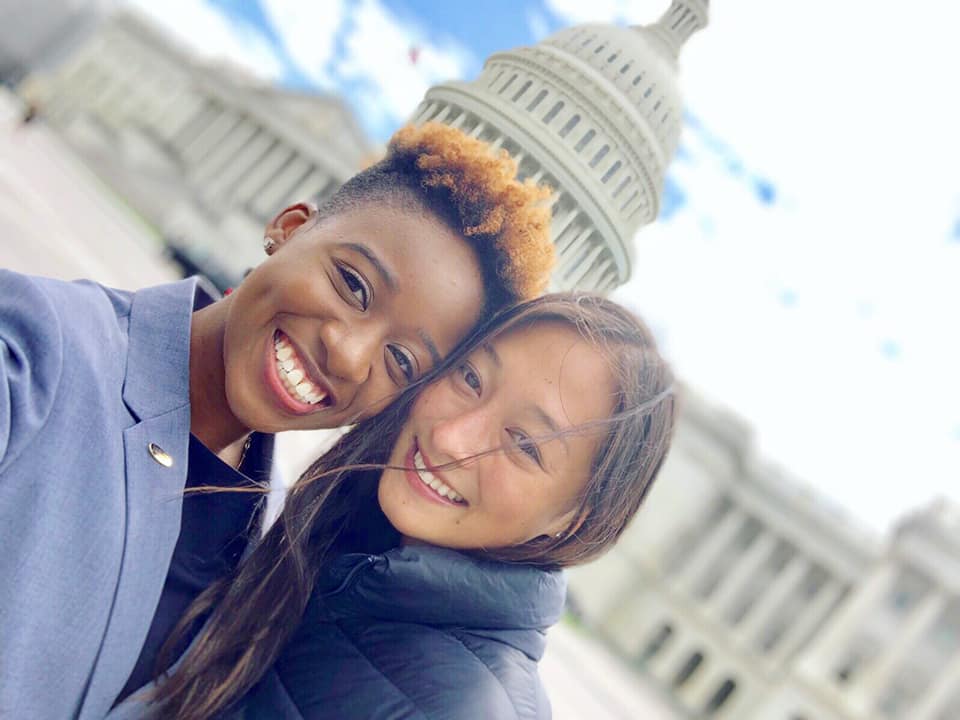
In May, Kalina attended Fulbright Ambassador congressional meetings on Capitol Hill in Washington DC to present the Fulbright project “Establishing cross-culture empathy through Big Talk” to senators and representatives. She was able to gift the Senator of Delaware’s office a set of Big Talk cards to use at their staff retreat, and Senator Dick Durbin tweeted a photo from the meeting!
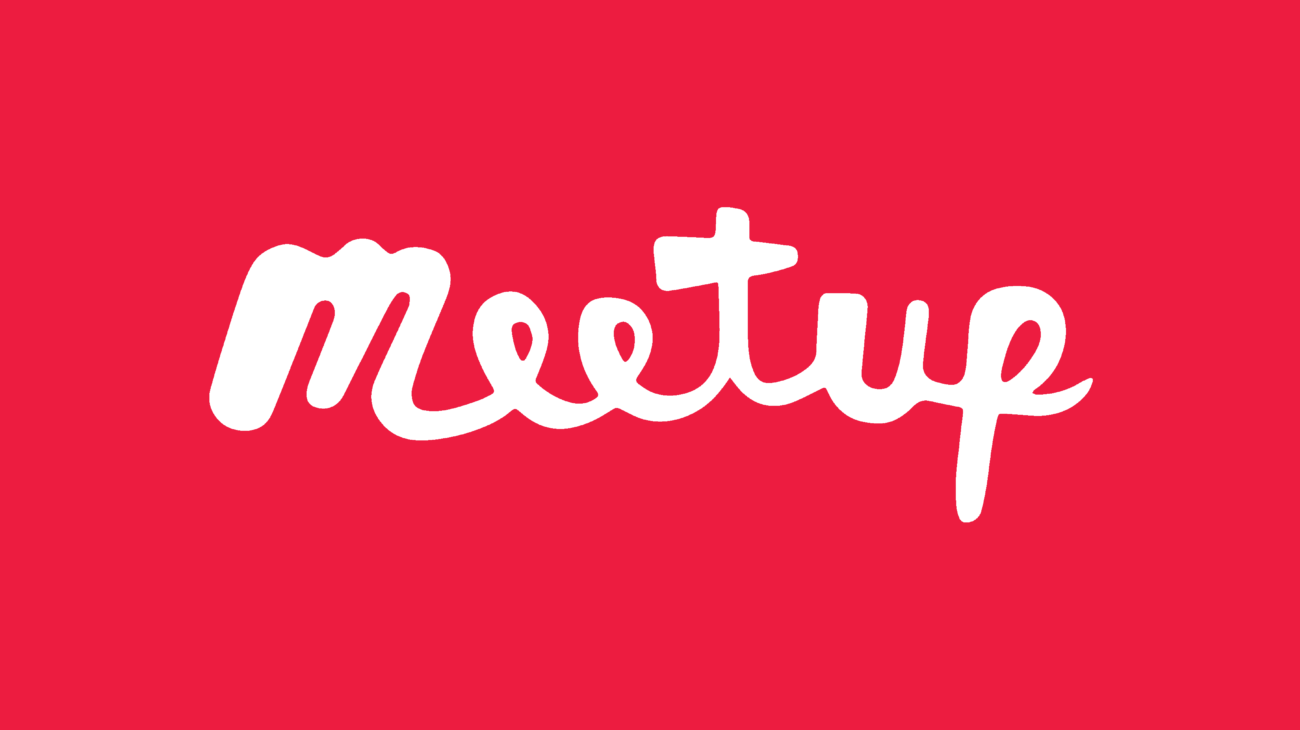
Big Talk themed meetups have been held around the world. Check out some of the ones in:
Hamburg, Germany
Charleston, South Carolina
Smyrna, Georgia
Perth, Australia
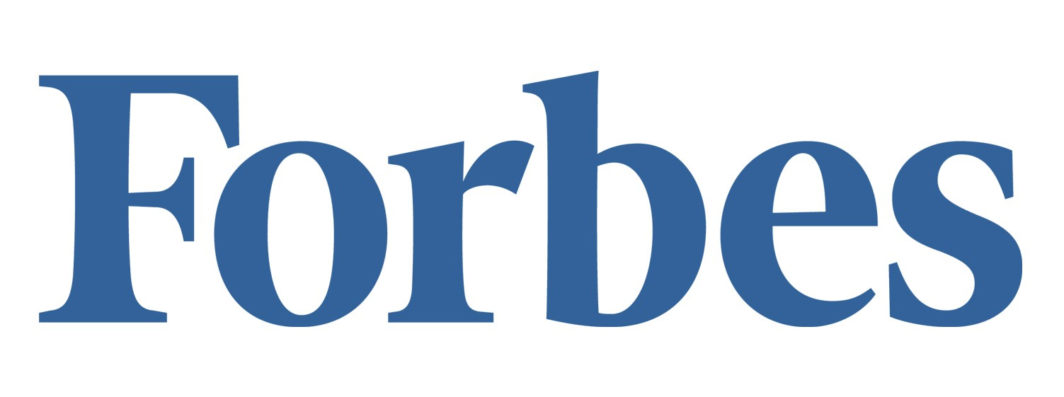
Forbe’s features Kalina’s Quora response to “How can we make more meaningful connections with people we’ve just met?”

Kalina Silverman is interviewed by Lisa Valentine Clark for BYU Radio about Big Talk.
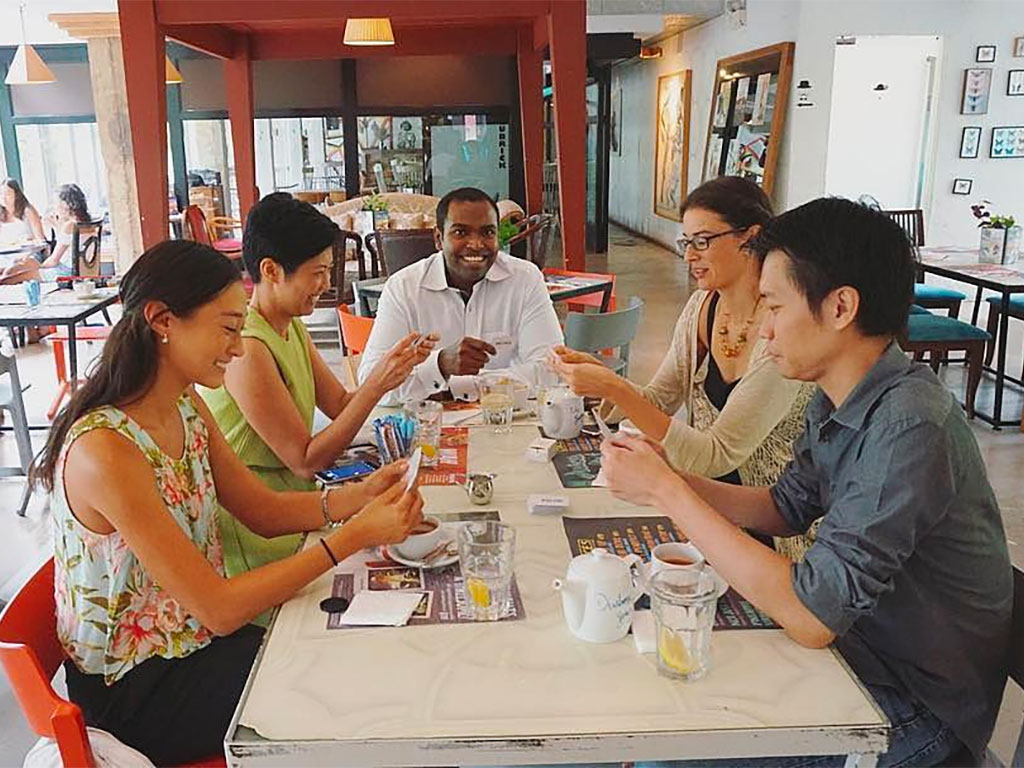
NBC Asia America chats with Kalina about her research and the impacts of Big Talk across cultures.
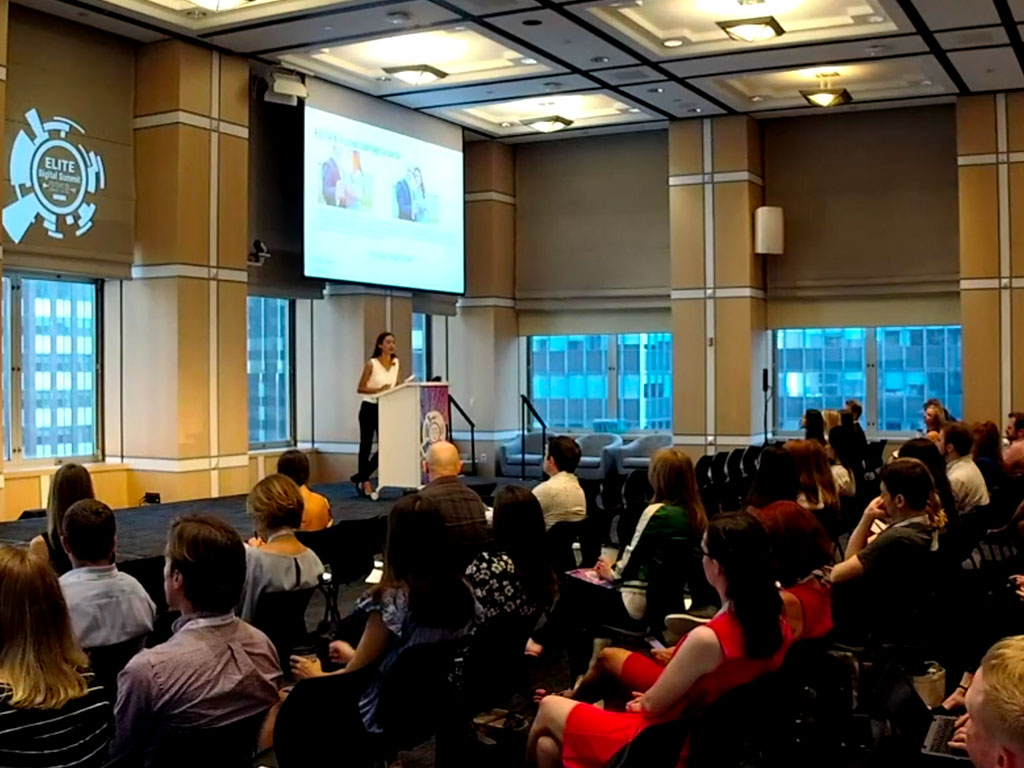
Kalina delivered a connectivity themed keynote speech to over 200 senior-level marketing, digital, and e-commerce executives and their peers on September 6th in New York City.
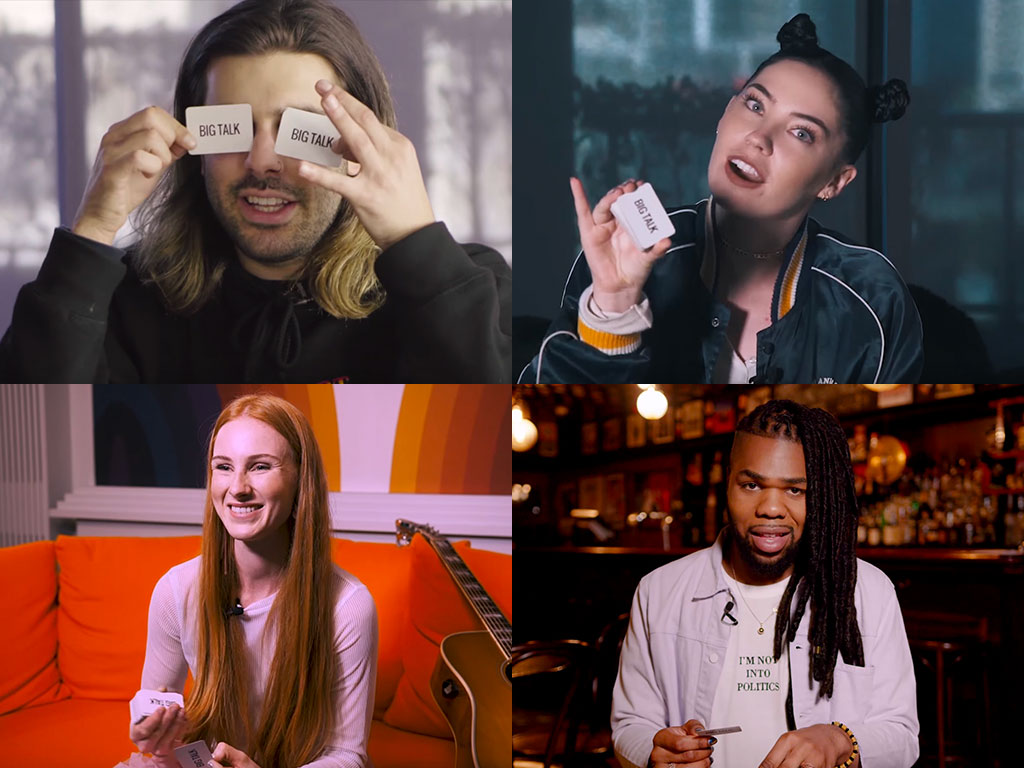
What do Bishop Briggs, Keith Urban, Lorde, Billie Eilish, and other superstar musicians have in common? They made Big Talk!
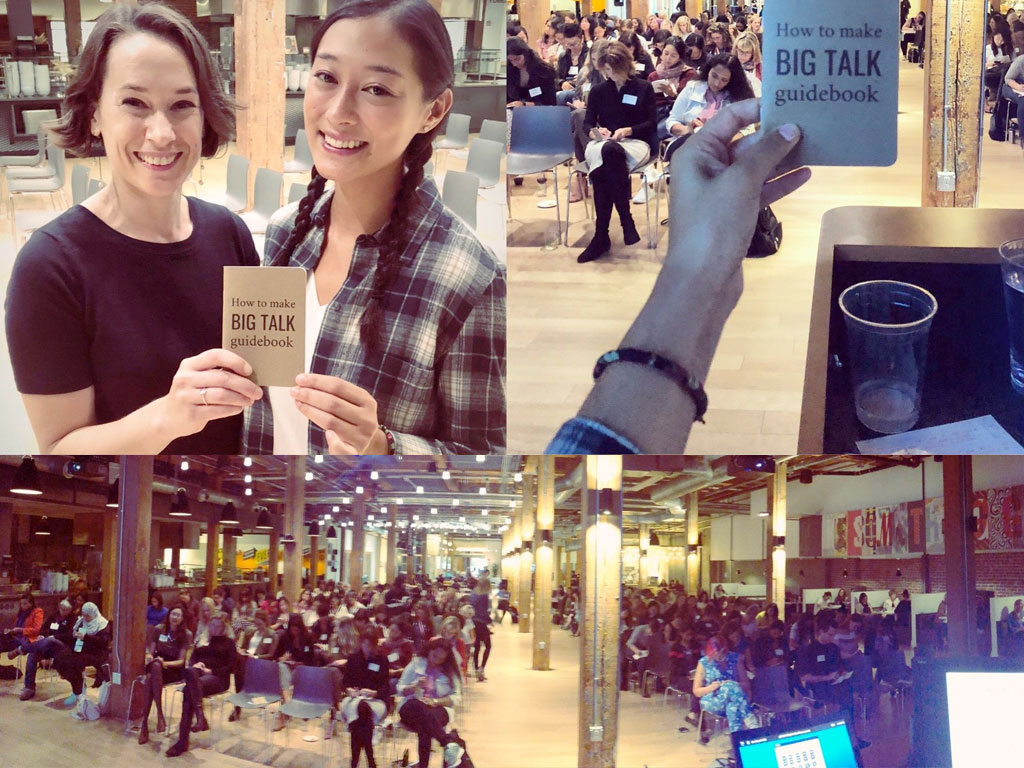
Big Talk Journals were distributed to over 200 women in tech at Adobe Headquarters in San Francisco.
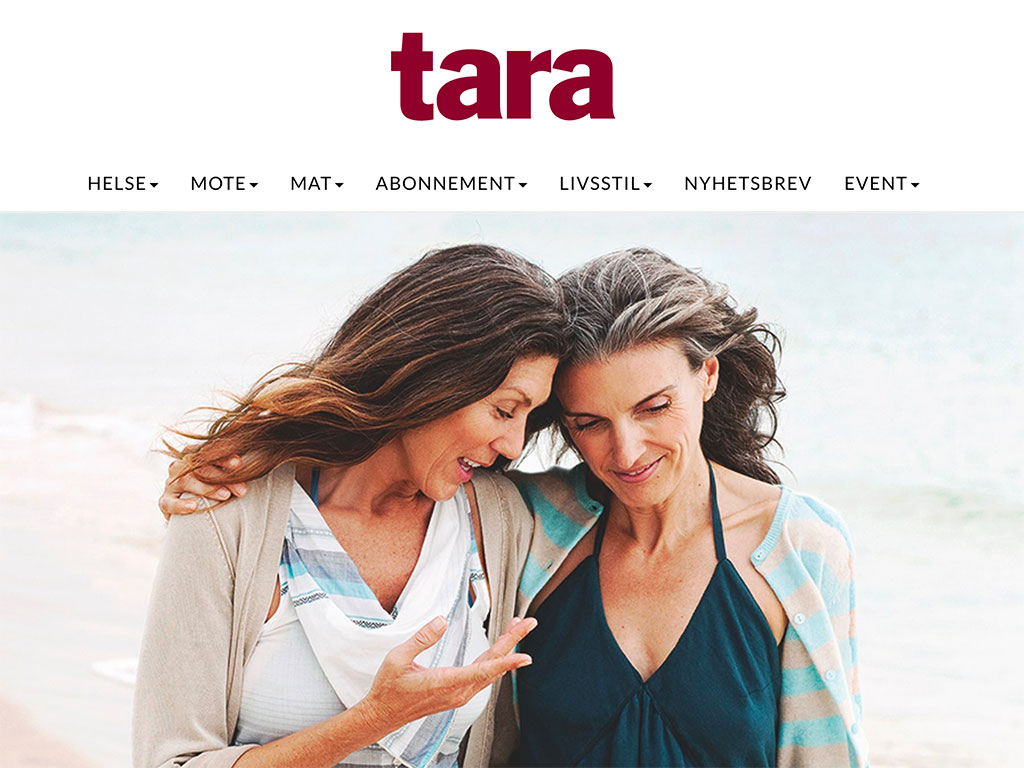
In Norway, people are inspired by making Big Talk to improve relationships in work and with friends.
This morning I received an email from Trinidad! On July 4th, the lovely Lynn-Marie Edwards hosted a Big Talk event for 70 at the Kaiso Blues Cafe:
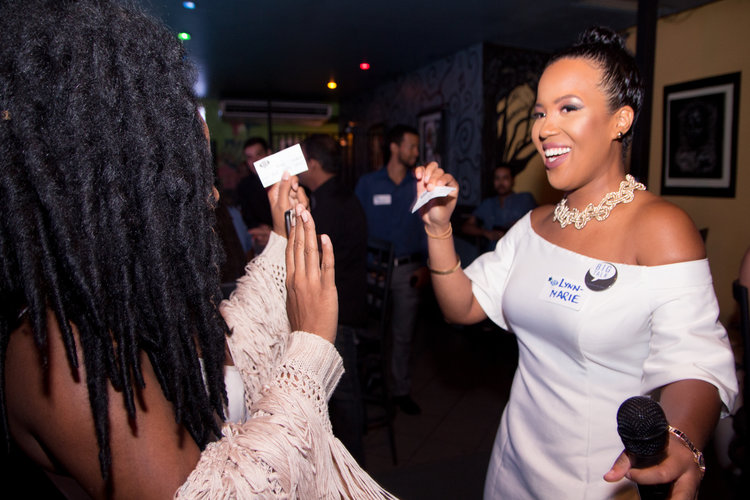
When I asked Lynn-Marie what organization helped her put on the event, I was touched by her answer:
“I am not attached to any organisation. I am just one woman who was so touched by an idea that I had to do something with it in in my community. In future, I want to have more events like these. I REALLY love Big Talk! I love what it does for people, almost giving them permission to let down their guards –
Many of the persons who attended expressed their desire to attend more events like Big Talk. We have a big party culture in Trinidad and Tobago. We are host to what some would say is the world’s greatest Carnival. As a result there aren’t that many fora where people can come together and engage in meaningful conversation just because. We also have a bad crime situation. The story of Trinidad and Tobago is quite an interesting one!
Maybe one day you can come here and we can have a grand Big Talk event and go around to schools and communities to Big Talk.”
The original message from Lynn-Marie:
“My team and I hosted a most successful and meaningful Big Talk evening called Big Talk- Conversations That Matter. We had about 70 people in attendance and held it on Tuesday 4th July, 2017
In promoting the event we interviewed some random people in our capital and made three promotional videos.
The evening started off with an ice-breaker called Find Your Big Talk Match. Questions were prepared in 3s and placed in a jar. Each participant had to choose a question and find the two other people who also chose that question and answer it.
After the ice-breaker I introduced myself as the host and explained the concept and flow of the evening. The idea was to have a relaxed evening of casual but meaningful conversation. My team and I prepared about 145 questions, using your questions as a base. We placed the questions in jars on cocktail tables throughout the space and groups were naturally formed and beautiful discussion flowed.
The feedback we received was overwhelmingly positive and we are looking forward to hosting more events.
Thanks again for this amazing idea and allowing us to use it to make conversations that matter.
Yours faithfully,
Lynn-Marie Edwards.”
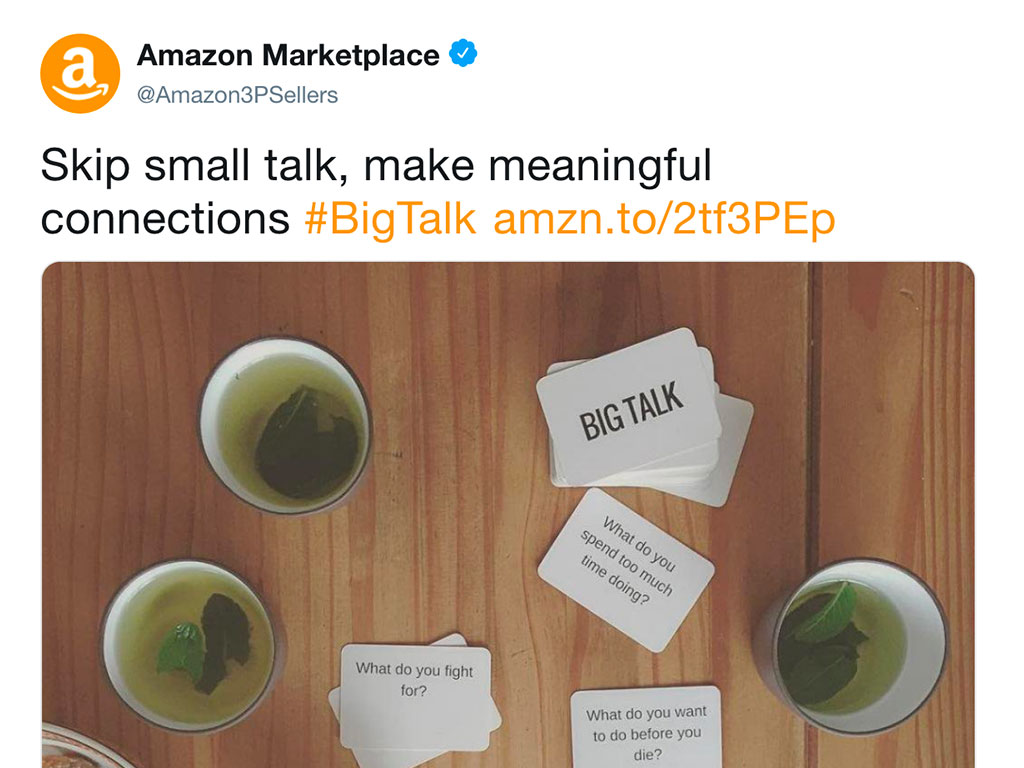
Amazon markets the Big Talk Question Card Game as an Amazon’s Choice Product.
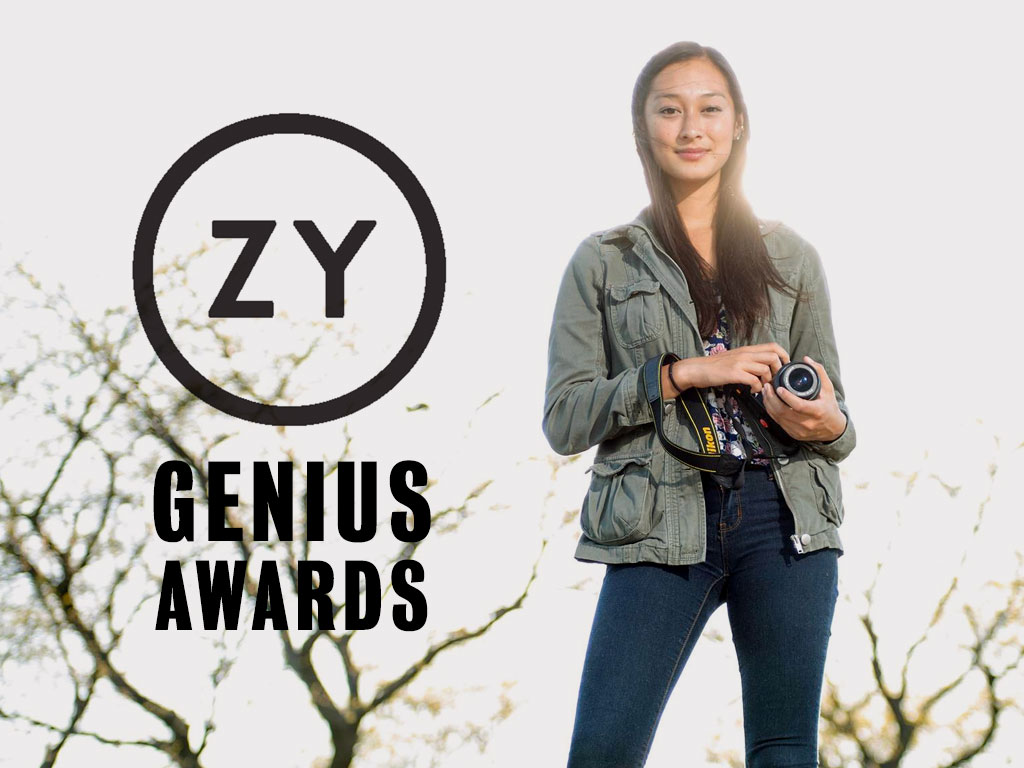
Kalina wins the competitive Ozy Genius Awards Grant for Big Talk.
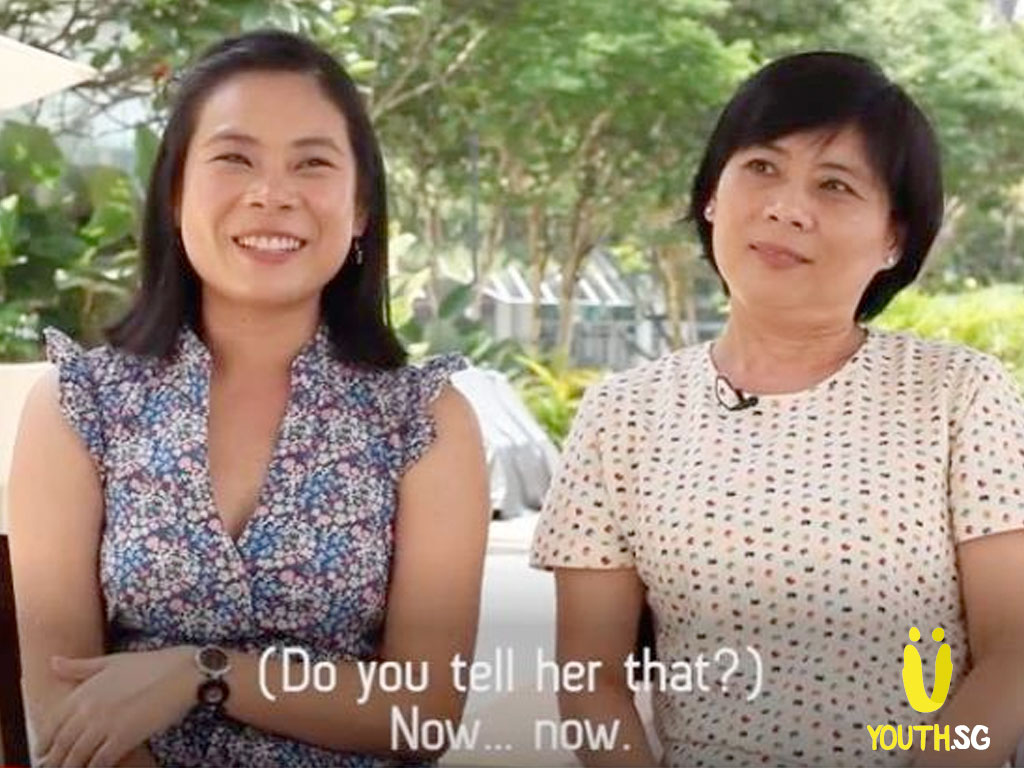
Singapore media publication Youth SG talks about ways to make Big Talk with family over Chinese new year.
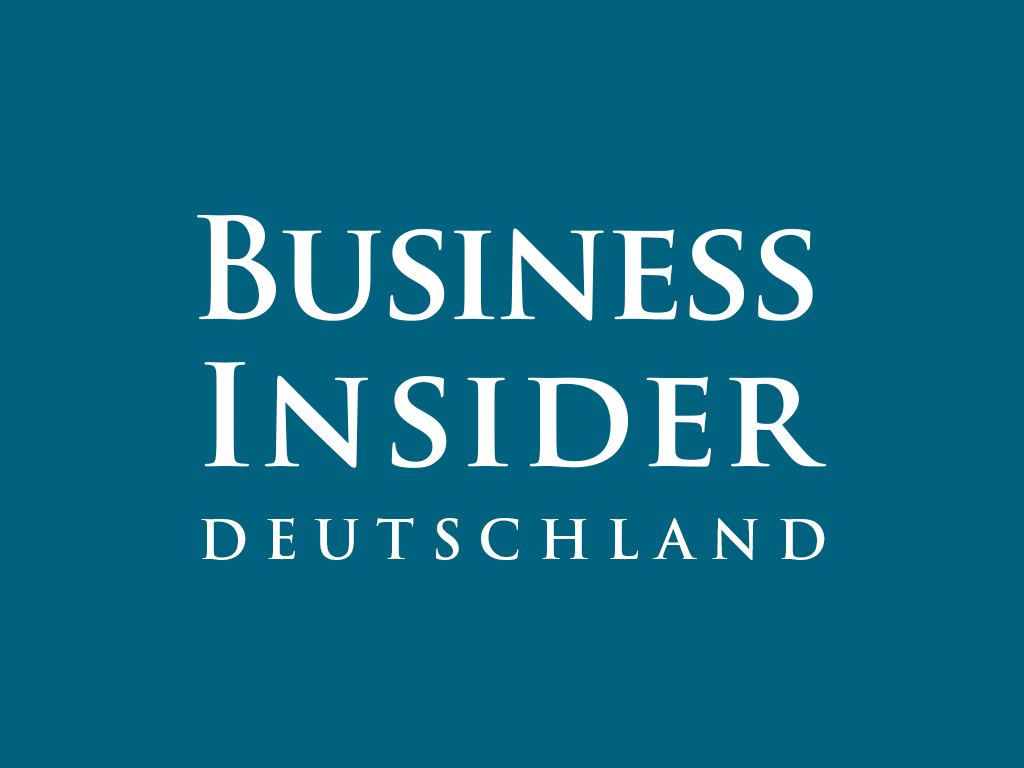
BI Germany discusses the profound aspects of using Big Talk in communication.

Read about “How to get past awkward small talk” from Lifehacker featuring Big Talk.
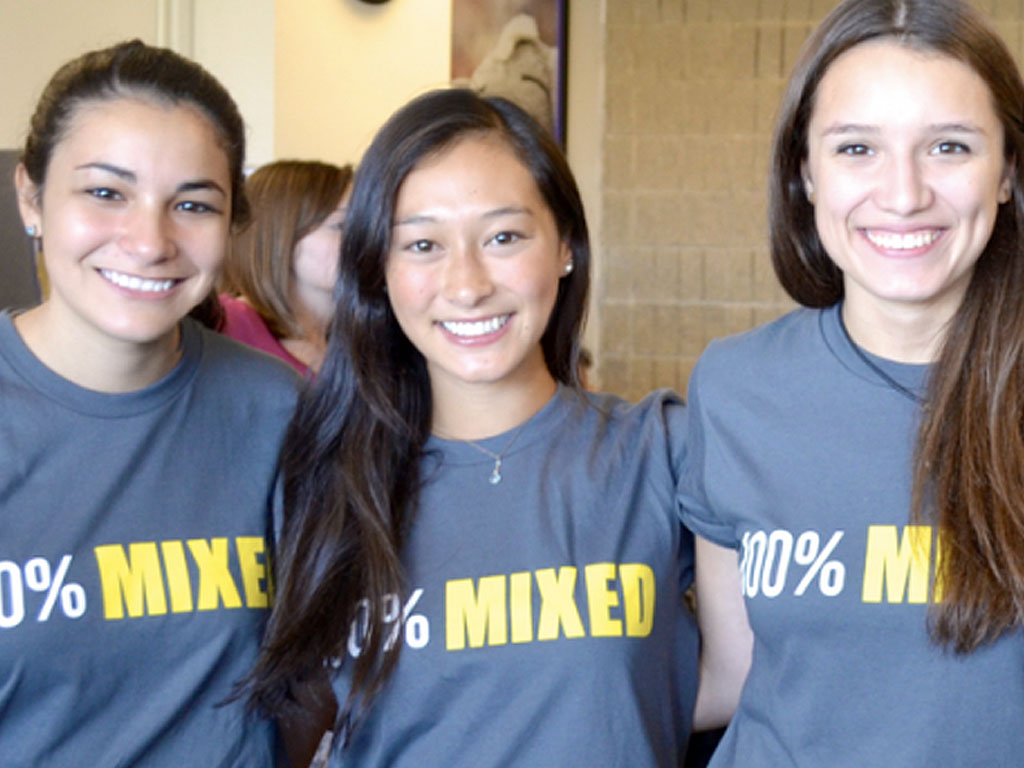
The Big Ten Network features Big Talk as an example of students getting out to make a difference in the real world.
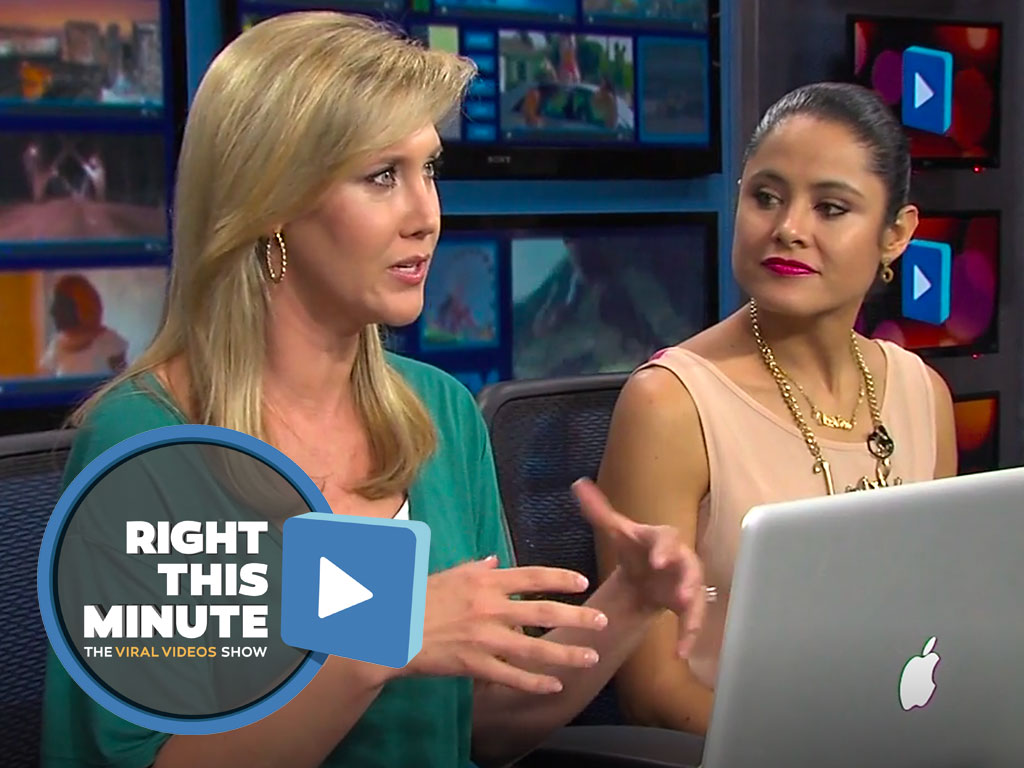
A Viral Video show features an episode on Big Talk.
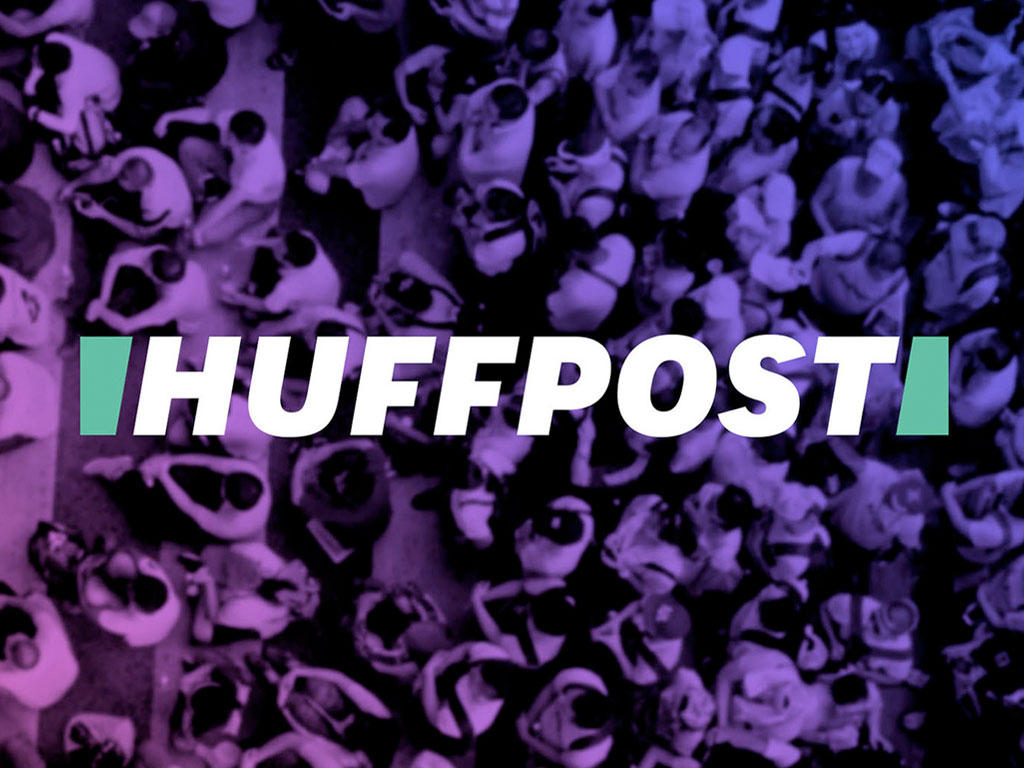
The article that helped launch the Big Talk movement.
It all began as a video I made one summer, where I walked up to complete strangers and invited them to answer the question, “What do you want to do before you die?”
Through this video, I hoped to show that no one needs to feel lonely. Instead, you can approach someone and start a conversation with a question that “skips the small talk” to nurture a deeper human connection.
Just one question has the power to transform your life – it certainly transformed mine!
Big Talk went on to become a sort of grassroots global movement after I was invited to give a TEDx talk that generated over 6.5 million views on YouTube. Soon people all over the world were sharing their stories about how asking Big Talk questions helped them to repair and deepen their relationships, overcome mental health struggles, find purpose at work, or even fall in love.
I have since led Big Talk workshops for thousands of people all over the world. Just this morning, 125 Fulbrighters from over 65 different countries (Mozambique, Sierra Leone, Pakistan, Mexico – to name a few) participated in Big Talk. Two months ago, I traveled to New Hampshire to film Big Talk conversations for their statewide mental health campaign. A few days ago, a rising pop star used the Big Talk question card game at a dinner with his closest fans in Los Angeles. A U.S. senator has used Big Talk with his staff, as well as teachers at Harvard Medical School, and employees of Fortune 500 companies. Big Talk has truly been a passport to getting to know people from all walks of life from all over the world.
Thank you to everyone who has supported and believed in Big Talk throughout these years. There have always been challenges and bumps along the road, but I am so grateful that what began as a passion project has evolved into a deeply fulfilling career!